The 100 best Marvel characters ranked
Counting down the top superheroes, sidekicks, and villains from across Marvel's movies and TV series
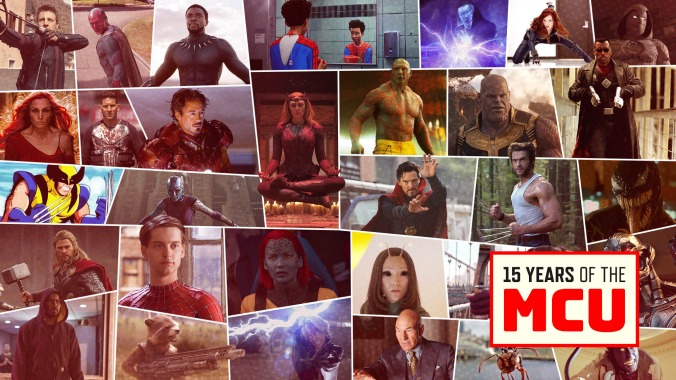
Since long before it was officially a cinematic universe, Marvel has been a pillar of pop culture, not simply telling stories (some well-established, others wholly original) that entertained audiences across the globe, but inspiring them through characters, ideas, and even values. Given Marvel’s expansive pantheon, picking out favorite characters—at least since the company’s canon started getting translated into films and TV shows—requires a careful triangulation of casting, filmmaking creativity, and in some cases, sheer longevity.
For example, everyone loves Spider-Man, but which Spider-Man? The same applies to Daredevil, Hulk, and a variety of X-Men characters, each of whom has offered different dimensions of iconic comics characters that many of us have worshipped since we were in short pants.
To celebrate the 15th anniversary of the launch of the MCU, The A.V. Club has assembled our ranking of the top 100 Marvel characters on screens big and small. Some are Marvel favorites who aren’t officially part of the MCU, some are cornerstones for the evolution of the MCU—highly active across multiple storylines and platforms—while others simply made an immediate and unforgettable impression, exemplifying a heroism or villainy that’s complex, believable, even sympathetic. There are also those characters we just thrill at seeing on the screen, creating a fun, unforgettable moment, TV show, or movie that stands out in Marvel’s ever-increasing canon.
You might not agree with our placement for some of these beloved heroes, sidekicks, supporting characters, and villains—and that’s OK. These fictional beings resonate with each of us in different ways. And while the placement is subjective, based on our big nerdy hearts, it also figures to change as new Marvel projects arrive.
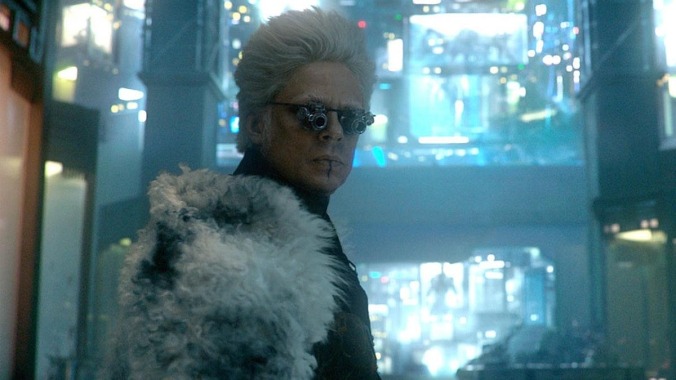
It’s been a beat since we’ve seen the cosmic vault keeper The Collector, star of Marvel shorts, after-credits scenes, and, basically, one middle portion of 2014’s . However, his presence is definitely felt in the where it’s revealed that he sold Knowhere, the giant severed head of a Celestial, to Peter Quill and gang to use as their homebase. Too bad we didn’t see Benicio del Toro being a weirdo in a bright white wig in the Holiday Special or in Vol. 3. The Oscar-winning actor exudes the sort of energy from which great, small parts are made as a keeper of the galaxy’s weirdest treasures. Despite the possibility that Thanos killed The Collector in , GOTG writer/director James Gunn insists that he’s still alive. Hopefully The Collector will return in future installments of GOTG—featuring the new team—in whatever cinematic or streaming form they might take. [William Hughes]
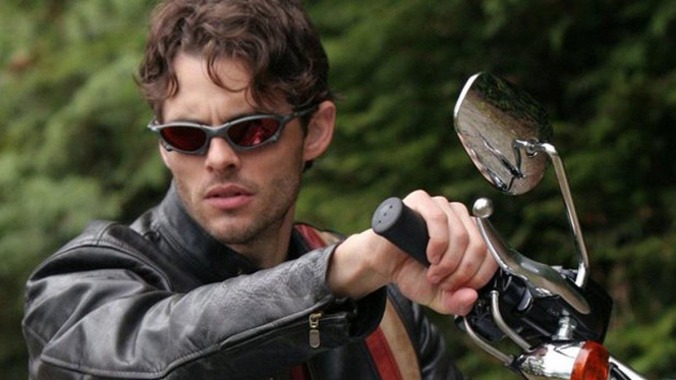
As in the comics, as in real-life: Scott Summers was never going to top his old frenemy Wolverine on this list. Even so, there’s a certain squarish charm to James Marsden’s portrayal of the optic-beam blasting mutant, successfully portraying a guy who’s clearly playing at being the badass leader of a super team (black leather and all) while also still being, well, kind of a dork. R.I.P. Scott: You deserved better than dying to a lover’s quarrel gone wrong … and the fallout of Marsden getting cast in . [William Hughes]
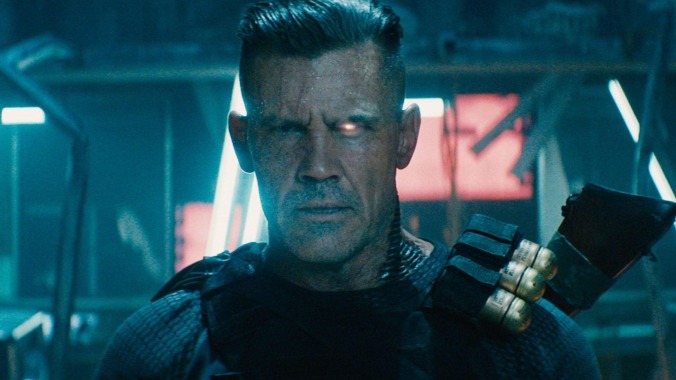
Even without literally equaling the comic book Cable’s massive proportions, Josh Brolin makes the time-traveling mutant commando every bit as physically intimidating—with his buff frame, craggy, seen-some-serious-shit face and weaponry larger than a small child—in . And the movie mercifully unburdens him of his oft-convoluted, oft-polarizing comic book backstory in favor of stripping him to his coolest core. Brolin may have been even more effective as Thanos in the MCU proper—a CG/voice role so brilliantly executed that it only slightly undermines his physical participation here—but he nevertheless strikes all the right notes, balancing aloof authority and military precision with subtle winks at some of the character’s inherent absurdities. Whether Cable will make his way into has yet to be determined but it would require explaining how he made it into the MCU. Hopefully, the answer, provided by a snarky Ryan Reynolds, will be, “who gives a crap, he’s cool and he’s in the movie. Just go with it!” [Scott Huver]
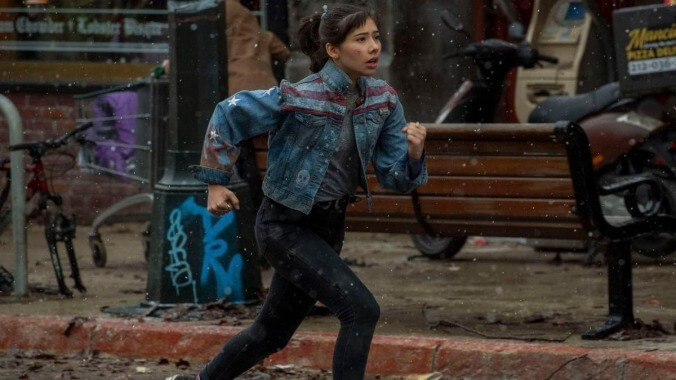
Xochitl Gomez’s ebullient America Chavez is exactly one film old in the MCU but managed to leave quite the impression by going toe-to-toe with Benedict Cumberbatch’s Doctor Strange in . It’s also not every day that you make an enemy out of the Scarlet Witch and live to tell the tale. Phase Four is clearly doubling as a Young Avengers countdown, and Utopian Parallel’s America Chavez has become a worthy entrant in the field. Not to mention, she’s being trained by Wong now, so things are only looking up. [Saloni Gajjar]
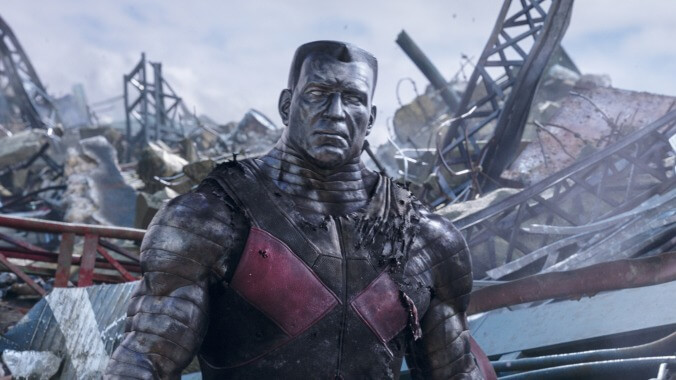
Okay, so the films’ takes on the X-Men’s steel-skinned strongman may not endure as the definitive one, but it’s definitely a deliriously fun version that’s perfectly suited for the madcap world of the Merc With A Mouth. In the absence of a screen version that truly captures or builds upon what’s made Peter Rasuptin a Marvel stalwart for five decades, the CG-rendered, Kapicic-voiced Colossus is a delightfully cartoonish parody of his hallmarks: his Russian heritage gets tweaked through a thick accent, his wholesome, naïve persona is amplified by a Pollyanna-ish, play-by-the-rules attitude, and even his steadfast, hulking status as the team’s powerhouse is exaggerated for laughs. As such, he makes an ideal foil for Wade Wilson—and audiences who’d prefer a take that hews closer to canon can still enjoy this version while also excusing it as part of the daft way Deadpool sees the world. Hopefully Colossus will continue to be his lovable self in the upcoming . [Scott Huver]

We first met Monica Rambeau as a youngster in , full of enthusiasm for Carol’s heroics. Fast forward a decade or two to and Monica (Teyonah Parris) is an adult woman who followed in her mother and pseudo-aunt’s footsteps to become an agent of S.W.O.R.D. Her bravery, intelligence, and determination are evident during the Westview crisis, but getting caught up with another Avenger leads to a powerful transformation. That—combined with the fact that in the intervening years, Carol went from a family member Monica adored and idolized to one she resented—set up some very exciting elements for her return in . [Mary Kate Carr]
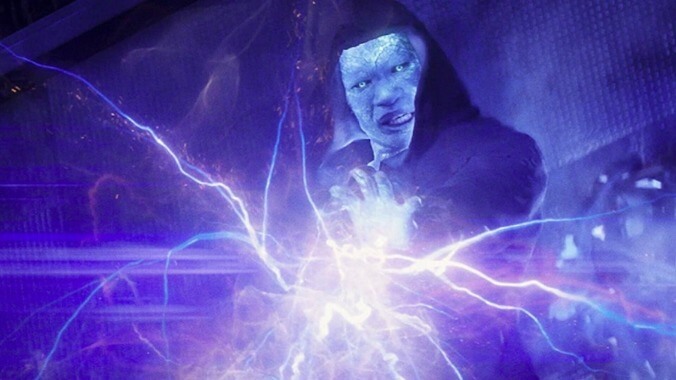
Despite his longevity, the comic book Electro isn’t exactly a Hall of Fame-caliber bad guy. He’s mostly known for his electrical powers, garish costume design, and little else. That changed with ’s spin on the high-voltage villain, fueled by a dynamic visual redesign and Jamie Foxx’s sympathetic portrayal of Max Dillon as a sweet-natured electrical engineer with a fanboy’s obsession for Spidey. Though his revamped origin story—zapped by electric eels—is rife with ridiculousness, there’s poignancy and pathos in Max’s corruption by his escalating power levels and increasing alienation. Electro returned in 2021’s jam-packed , this time in the MCU proper, only to find himself eventually cured by a serum created by Peter Parker and then sent back to his own universe. But no matter what corner of the multiverse he resides in, expect a more human, relatable Electro to become the standard. [Scott Huver]
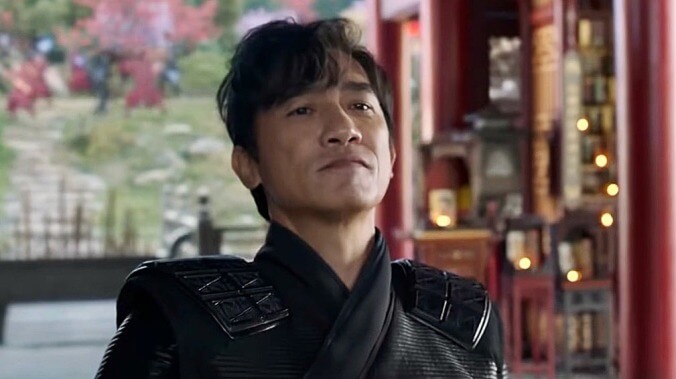
Out of the gate, the MCU take solved more than one problem: the foremost being that Shang-Chi’s original comic book sire was the classic pulp villain Fu Manchu, back when Marvel briefly licensed the character; it also made sense to incorporate the long-lingering mystery of the Mandarin, the villain hinted at after a bait-and-switch in with the verbose actor Trevor Slattery (Ben Kingsley). Since both Fu Manchu and the Mandarin originally drew upon and perpetuated offensive, outdated cultural stereotypes, it was shrewd to reconceive the character as 21st Century crime kingpin Xu Wenwu, with a backstory equally in line with Chinese legends and Hong Kong cinema. Leung’s magnetic performance infused the character with equal parts menace, gravitas and a simmering streak of nobility. The MCU approach will no doubt endure as a definitive take on Shang-Chi’s father, as both a formidable adversary and an empathetic figure. [Scott Huver]
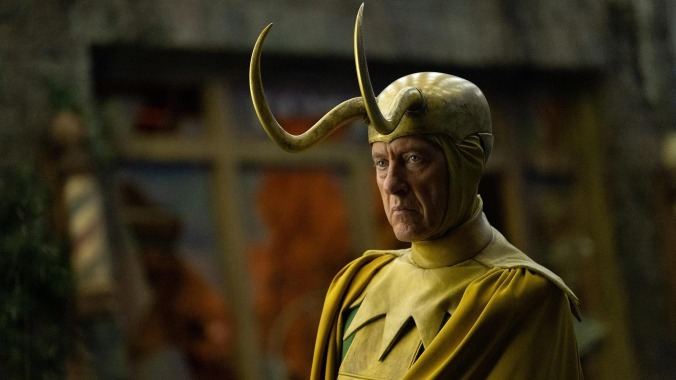
There’s always been a sadness to Tom Hiddleston’s Loki—something that came into sharp relief when Richard E. Grant took on the role of his older, possibly wiser self in Disney+’s . Grant brings the ham, of course, literally conjuring scenery for a monster to chew on with his “Glorious purpose!” farewell. But it’s his frank, broken dismissal of his own place in the universe that lingers even more, a solemn jester who’s realized his own life has been the ultimate joke. [William Hughes]
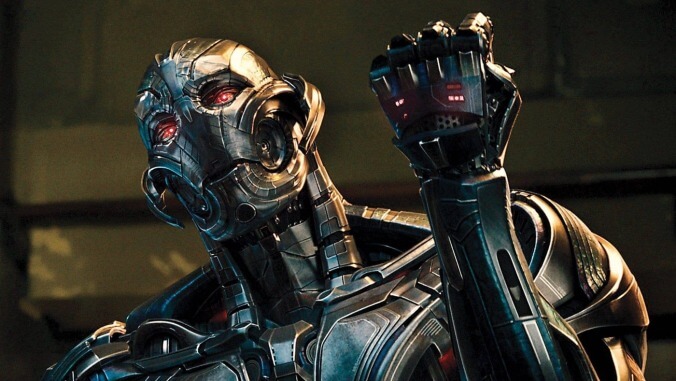
Though not as iconically charming or surprisingly compelling as some other Marvel villains, Ultron deserves a shoutout for his weird villain arc: He starts as a shambling mess of garbage who is actually very scary, and he later becomes a nigh-invulnerable super robot with an army of machines who has the chatty, disaffected personality of a mechanical James Spader. He’s not particularly scary, but it is a fun choice, and he actually managed to kill an Avenger (or at least an honorary Avenger)—which is more than can be said about Loki. An alternate version of Ultron even got the Infinity Stones and nearly destroyed the multiverse on Disney+’s , but that doesn’t make him any more compelling. [Sam Barsanti]
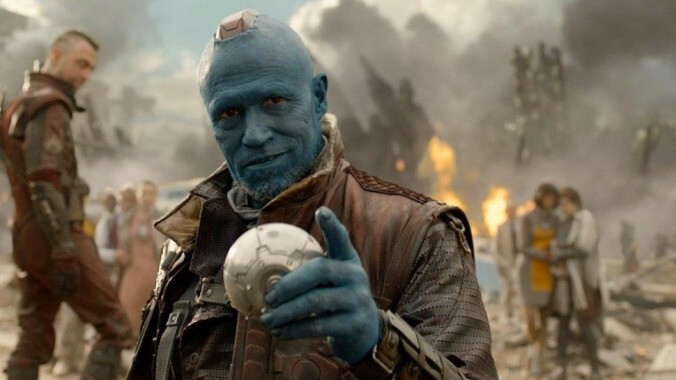
Fans astonished by Marvel’s decision to even make a movie were probably bowled over to discover that Yondu (Michael Rooker), the blue-skinned, mohawk-sporting, blowdart-shooting, whistling surrogate father to Peter Quill (Chris Pratt) would be the emotional spine for the series. All credit goes to Michael Rooker, who somehow mines the character for a rich vein of pathos that flows over the film in an unexpectedly beautiful and touching way. Rooker’s long been cracking dingers in genre movies and on , and watching him reveal his unique and uproarious version of the scumbag with a heart of gold is one the MCU will strive hard to recreate. The character’s final moments rank among the best of any superhero movie, but it’s no surprise that Yondu has a certain magic. After all, he’s Marry Poppins, y’all. [Matt Schimkowitz]
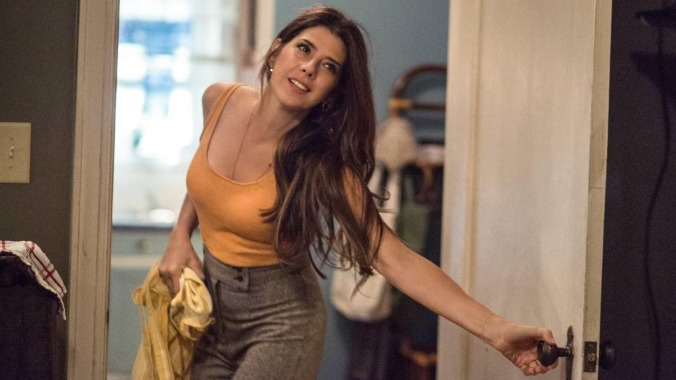
“What if Aunt May was young and hot?” was the premise for the MCU’s take on this classic character. This isn’t a commentary on the physical beauty of Rosemary Harris or Sally Field; other characters in the films were constantly pointing out how hip and attractive Tomei’s Aunt May was. She was more than just a pretty face, though. As the first Uncle Ben-less May, Tomei played the role of single parent with aplomb—her familial chemistry with Tom Holland always felt warm and real. Working in community building herself, she recognized the value of a friendly neighborhood Spider-Man and encouraged her nephew towards the greater good. Not to mention, she had her own moments of badassery to appreciate as well. Upon her death in , she even gets to tell Peter, “with great power there must also come great responsibility.” [Mary Kate Carr]
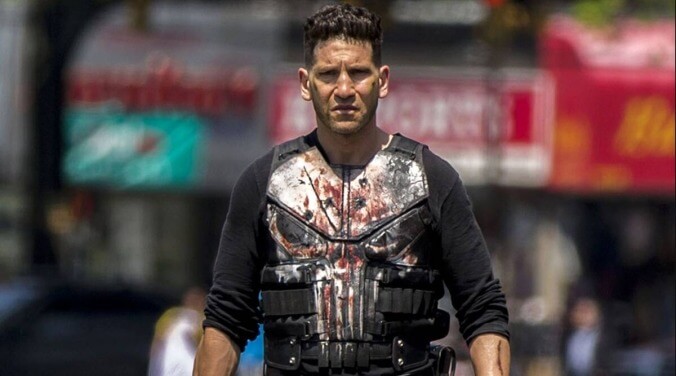
Frank Castle is a truly lenticular character, depending on the angle from which he’s viewed: from one perspective, he’s a tortured anti-hero, righteous in his rage and anguish as he balances the scales of justice; from another, he’s a murderous vigilante with no bottom to his quest for vengeance, little better than the criminals he kills. The MCU lucked out when they cast Bernthal in the role, an actor with an acute ability to portray both facets and turn them on their heads: he can make you empathize with Castle when you want to condemn him, and vice versa. As in the comics, those gray areas come into sharper relief the further the Punisher veers from colorfully clad superheroes, and Bernthal’s version, too, is even more compelling, a gritty step removed from the traditional MCU. The character—and his Netflix series—can be polarizing, but all can agree that it’d be a difficult task to find an actor that plays him better—and more sympathetically—than Bernthal (and Hollywood tried, three previous times!). [Scott Huver]
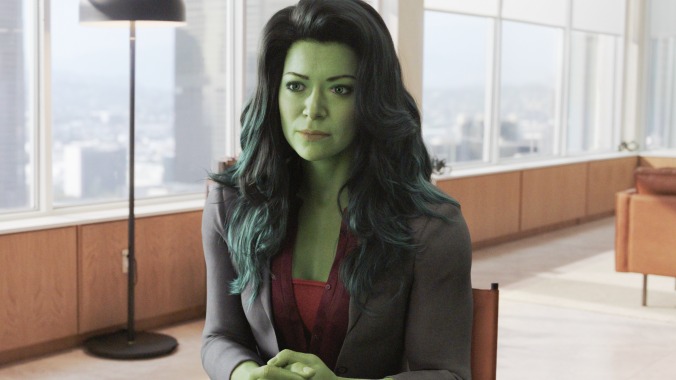
We got to meet Bruce Banner’s bright, stylish cousin Jennifer Walters in 2022 in her own Disney+ show . Dodgy CGI aside, Maslany is delightful in the role of Jen, who gains superpowers after she’s injured in a car accident and receives a blood transfusion courtesy of Bruce. The live-action version channels the comic’s irreverent tone, as Jen navigates her dual identity in some hilariously heightened situations. Despite her new ability to “hulk out” at will, she’s still just an ordinary working gal trying to get by in the world, smashing “fourth walls and bad endings, and sometimes Matt Murdock.” [Cindy White]
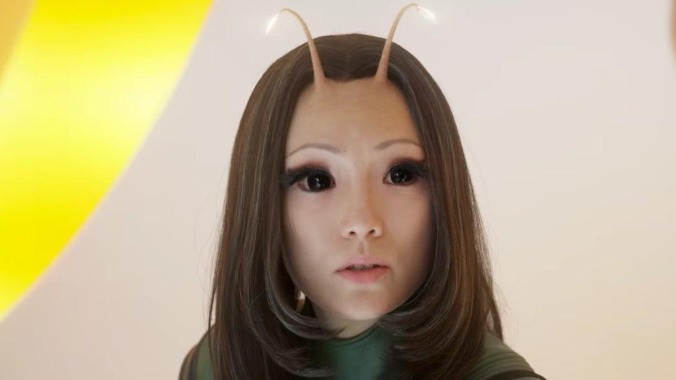
It’s tough to inject heart into characters who so often seem to be the butt of jokes, but that just so happens to be James Gunn’s speciality, and he found the right actor to play along in Pom Klementieff. As Mantis, Klementieff is introduced as a meek servant, there to react to Drax’s increasingly brutal observations about her and to deliver plot-relevant information about her villainous master. But there’s something in Klementieff’s performance, in the way she navigates the subtle emotional resonances signified by Mantis’ antennae. It adds a layer of emotional gravity to everything she does, best exemplified by having to hold onto the secret of being Peter’s half-sister until the very end of the . It’s no wonder that she’s stuck around since , and that she increasingly feels like an indispensable part of the MCU’s resident band of space misfits. [Matthew Jackson]
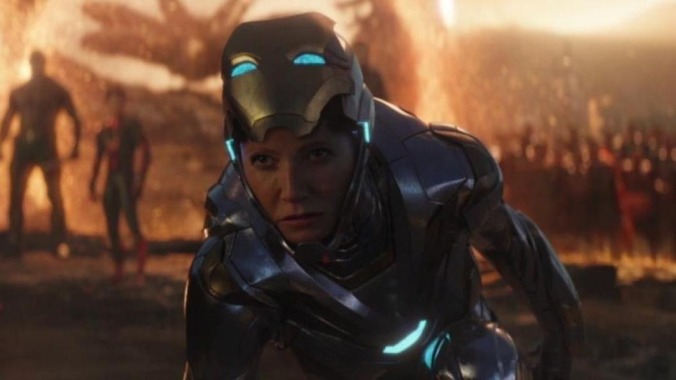
The best thing about Pepper Potts in the MCU is that she always seems like she has something better to do, which is actually a perfect reflection of how she tolerates Tony Stark’s bullshit. She got an Iron Man suit of her own in , but she’s at her best when she seems like she’d rather be somewhere else (like, say, running Stark’s company or just being anywhere other than where the superhero stuff is happening). Again: We’re talking about Pepper Potts the character and not Gwyneth Paltrow the actor, though it’s worth reiterating that is very much a feature and not a bug. [Sam Barsanti]
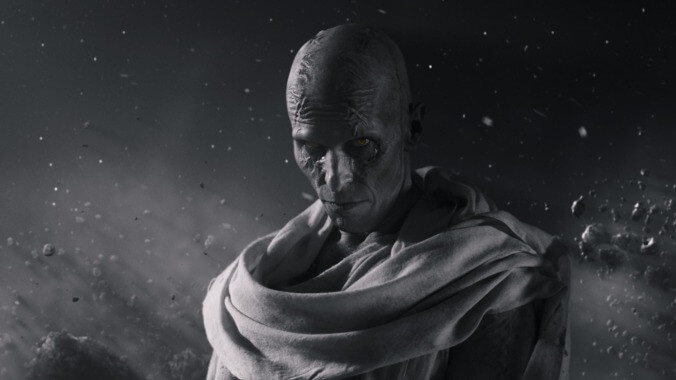
Both a byproduct of the impulse to create villains with identifiable motivations, and a benefactor of heavy-hitter casting, Christian Bale’s Gorr the God Butcher is the best Marvel baddie in years. Driven by vengeance after his people’s deity laughs at the unimaginable loss of a child, Gorr carves a bloody path across the multiverse in using a badass weapon (that admittedly is poisoning his soul) to exact his brand of justice upon the powerful who dismiss those who worship at their feet. Not since Killmonger has an MCU adversary felt so full of rage, pain, and righteousness, and Bale amplifies all of those emotional dimensions while also giving him a haunting, unforgettable look. [Todd Gilchrist]
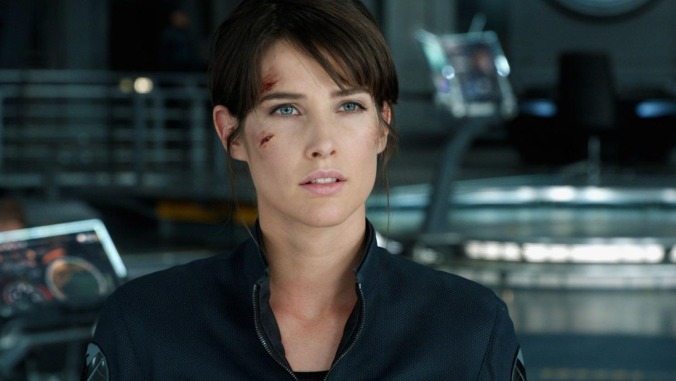
Maria Hill is an underrated part of team S.H.I.E.L.D. The ever-loyal agent has always got Nick Fury and Phil Coulson’s back, but she’s also proven her worth by supporting the Avengers when needed. Honestly, she’s reliable, fun, and has managed to survive alien invasions and robot villains. What more do you need? Hill is an integral comic book character who hasn’t been well-developed in the MCU yet, but Cobie Smulders’ on-screen alter ego still has a long way to go. She’ll be appearing in Disney+’s Secret Invasion alongside Samuel L. Jackson, Ben Mendelsohn, and Don Cheadle. [Saloni Gajjar]
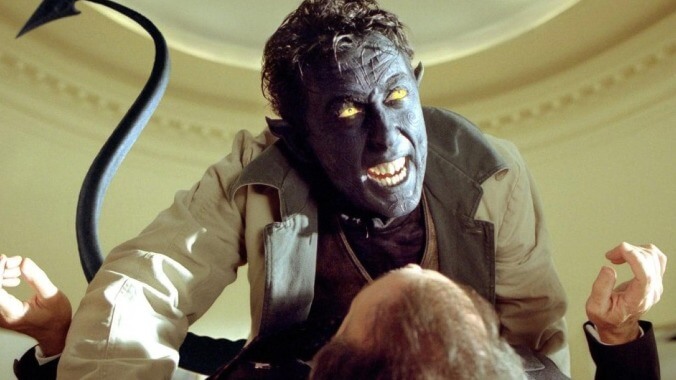
The first scene of is a level-up moment for the whole comic book enterprise. The still-seamless special effects, kinetic camera and stunt work, and Alan Cumming’s makeup, physicality, and hissing announced a more creative, action-based, and, yes, political superhero movie than before. Pre-MCU, the White House break-in was the gold standard for these movies and one that not many have ever topped. The sequence is so fulfilling that it almost makes up for the fact that Nightcrawler gets a little lost in the film’s actual plot. [Matt Schimkowitz]
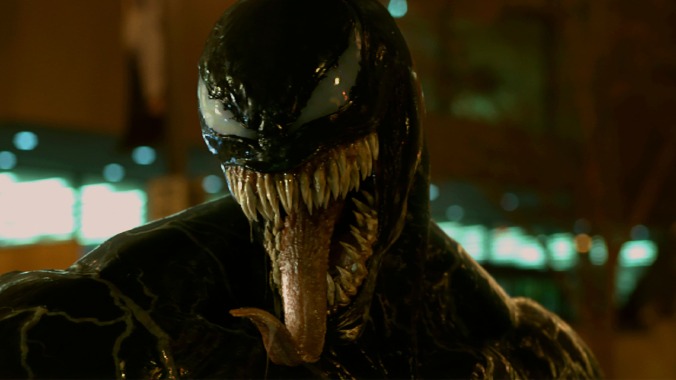
While it remains to be seen if Hardy’s quirky, semi-comic take on the alien symbiote-turned-antihero that took the comics world by storm in the ’90s is going to leave the same kind of enduring mark that, say, Robert Downey, Jr., left on all depictions of Iron Man, Hardy’s performance makes the first film considerably more watchable than it deserved to be, and clearly pointed to the more self-aware B-movie tone of the sequel. If Eddie Block and his symbiote sometimes seem ill-fitted to hang whole movie storylines on, Hardy’s version—relying, as the actor often seems inclined to do, on eccentric bits of business—uses both acting heft and star power to make the conjoined duo nominally more compelling. That said, even after two off-kilter attempts—Hardy’s Jekyll-and-Hyde movie monster version and Topher Grace’s straight supervillain—die-hard Venom fans likely haven’t seen the ultimate expression of the pitch-black extraterrestrial on screen just yet. [Scott Huver]
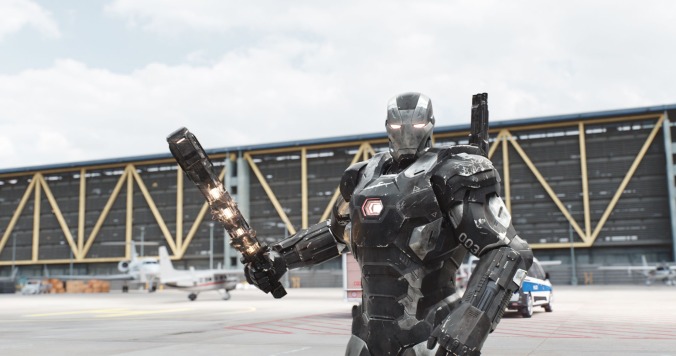
James Rhodes, a.k.a War Machine, is a welcome addition to any “Assemble!” moment because every superhero group needs a wiseass who keeps things grounded. Played in the MCU by Terence Howard in and then by Don Cheadle in all subsequent installments, Rhodey is a U.S. Air Force officer who shares Tony Stark’s sense of humor. And while he’s been a supporting character since his first appearance in the Iron Man comics, don’t be surprised if Cheadle—Emmy-nominated for his appearance on —gets his own property to spread his wings, er, flying suit. Actors like him can do a lot with a little, injecting dry humor into both one-liners and fast-paced action; War Machine’s movements can offer comedy in the most dizzying shoot-’em-up moments. [Jack Smart]
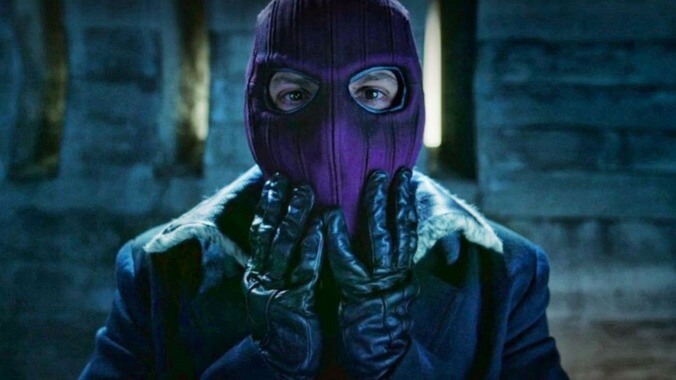
For a guy with such an unassuming presence (or maybe because of it), Baron Zemo has wreaked a lot of havoc in the MCU. He orchestrated the conflict between Tony Stark and Steve Rogers that led to their split in , kicking things off by killing King T’Chaka in order to frame the Winter Soldier for it. It was all part of an elaborate scheme to get revenge on the heroes he blamed for the death of his wife and family in Sokovia. Zemo would later form a temporary and uneasy alliance with Bucky and Sam in to stop a group of violent activists hopped up on super-soldier serum. He’ll work with anyone if it suits his goals, though it’s never a good idea to trust him. Or his butler. [Cindy White]
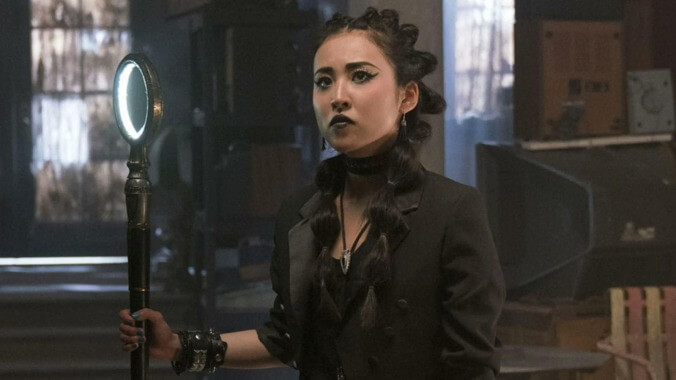
This founding member of the will act as our stand-in for the short-lived but underrated Hulu/Freeform Marvel universe (which also includes Cloak & Dagger). But Nico (Lyrica Okano) also stands out as a unique character in her own right. She became a self-styled witch after losing her sister, and later became one in earnest after stealing the Staff of One from her mother and using her growing magical abilities to lead and protect her friends from their villainous parents (aka PRIDE). She was also one-half of one of Marvel’s first queer couples, alongside her girlfriend Karolina Dean (Virginia Gardner). Though the series falls somewhere in MCU canon limbo, Nico proved how compelling a teen Marvel hero could be. [Mary Kate Carr]
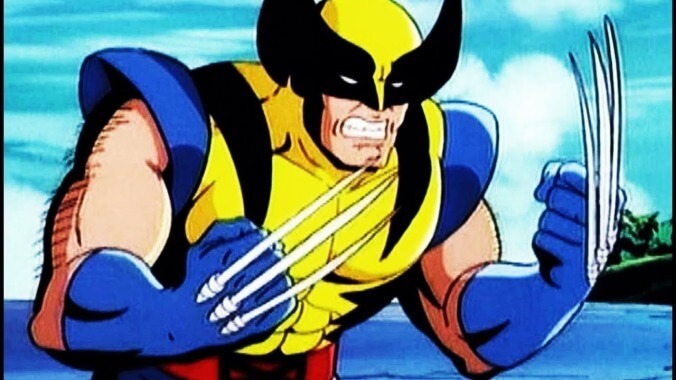
Don’t be fooled by his place on this list: The ’90s cartoon version of Wolverine is arguably one of the most iconic versions of any superhero ever. Hugh Jackman’s performance might’ve made for a more “interesting” interpretation of Wolverine, whatever that means to you, but the cartoon Wolverine is a far more comics-accurate take that actually puts him in his old costume and lets him say “bub” all the time. Then there’s of Wolverine laying in bed while pining for Jean Grey, which has been and . [Sam Barsanti]
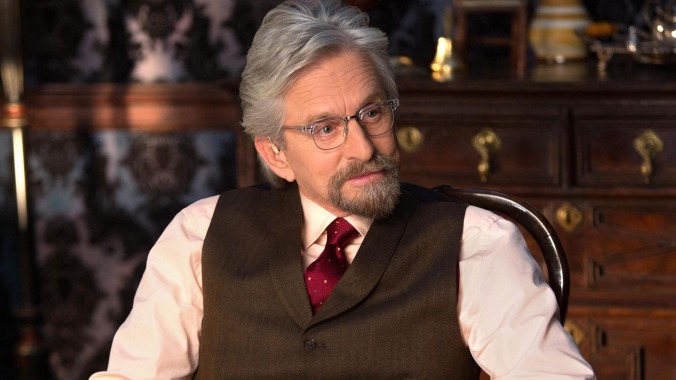
In casting the senior-age screen icon Michael Douglas, the MCU incarnation delivered a seemingly radical but shrewd and quite welcome shift for the venerable Marvel hero: rather than leading with yet another brilliant-scientist-turned-superhero, aging Hank up allowed for a more seamless entry point for the arguably fresher take of ex-con Scott Lang (Paul Rudd), and provided both the legacy hero aspect and fun bickering between mentor and apprentice—further spiced up by the fact that he’s also the father of Scott’s love interest, Hope (Evangeline Lily). Retaining Hank’s history as the first Ant-Man opened up a tantalizing, previously unexplored ’80s-era corner of the MCU, and provided a backstory that hinted at his interpersonal issues (but not nearly as problematic as the comics version’s daunting pile-up of mental and emotional troubles), including his complicated relationship with his daughter. That Hank is played with both charm and crotchetiness in all three Ant-Man films by the always-welcome Douglas is the cherry on top. [Scott Huver]
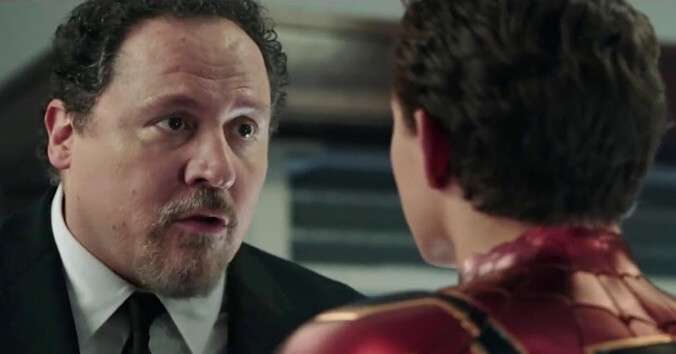
It’s hard to pinpoint the moment when Happy Hogan went from being an excuse to give director Jon Favreau a cameo to being one of the main characters in a movie, but it probably comes from ’s decision to not only put Happy’s life on the line after he’s caught in a super-powered terrorist attack but to also give him a good running joke in the form of his obsessive dedication to his job as Tony Stark’s head of security. The joke brought his personality into focus: He’s not a hero like Tony and he’s not a regular person like Pepper, he’s the perfect midpoint. He can’t get involved in superhero stuff, but if you need someone on the ground to point up at some weird portal opening up the sky, Happy Hogan is your man. [Sam Barsanti]
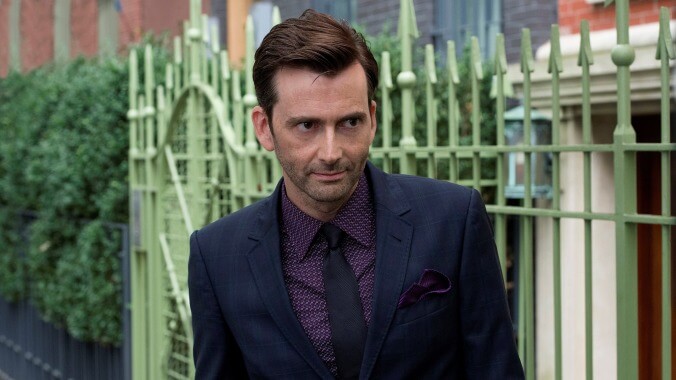
A great power can beget a great villain, and everything you need to know about Zebediah Kilgrave (eschewing his very literal Marvel Comics nickname, The Purple Man, for his appearance in Netflix’s ) comes from this: He can make anyone do anything, anything, that he tells them to do. David Tennant takes that idea and runs with it, crafting one of the sleaziest performances of his career—while also evoking just the tiniest bit of sympathy from the realization that the kid probably never had a chance to be anything but the monster he became. [William Hughes]
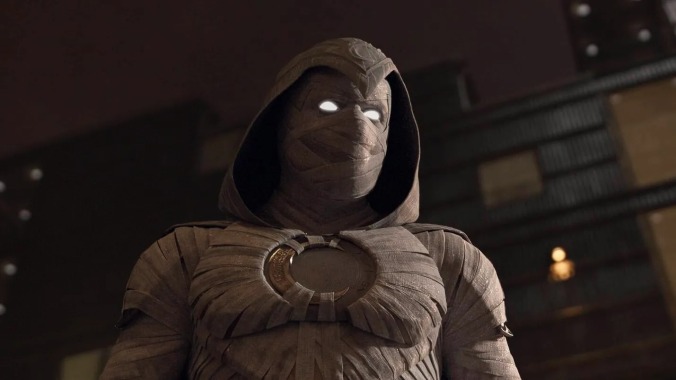
Constantly struggling to emerge as more than a cult favorite, the comics version of Moon Knight tried on nearly as many different moods and vibes as the DID-plagued hero did alter-ego(s). The MCU deftly split him into two distinct personas, the hapless fop Steven Grant and the tortured mercenary Marc Spector, and doing so created a brilliantly intriguing, Hitchcockian kickoff to Moon Knight’s adventure and offered up an actor’s holiday for the adroit Oscar Isaac, who delivered entertaining takes on each incarnation. Viewers also got to take in both Marc’s classic, caped Fist of Khonshu-style hero and Steven’s nattily suited Mr. Knight version—the two looks debuted decades apart from each other—and instantly debate which looked cooler. Whenever the supernatural Egyptian goings-on get a little heady, Isaac’s performance keeps everything emotionally grounded—and (spoiler alert) the show offered a tremendous cliffhanger hook with a glimpse of a surprise third persona, Jake Lockley. [Scott Huver]
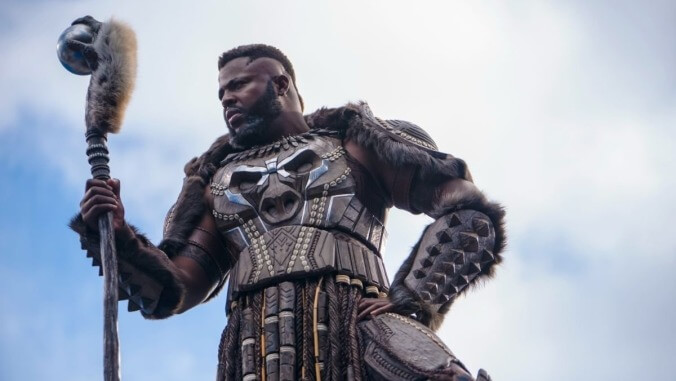
Masterfully embodied by Winston Duke, M’Baku is the leader of Wakanda’s Jabari tribe, an isolated mountain clan that worships the white gorilla. Although initially antagonistic toward T’Challa, he offered shelter to the king after his first battle with Kilmonger left him weakened and presumed dead. Later, he and his army assisted the Avengers in fighting off the Outriders sent by Thanos in . He also stood with his countrymen to defend Wakanda from “fish man” Namor and his Talokanil warriors in . Duke’s performance in the first film, full of gravitas and humor, made him a fan favorite and led to a more significant role in the second, which ends with him becoming the next King of Wakanda. [Cindy White]
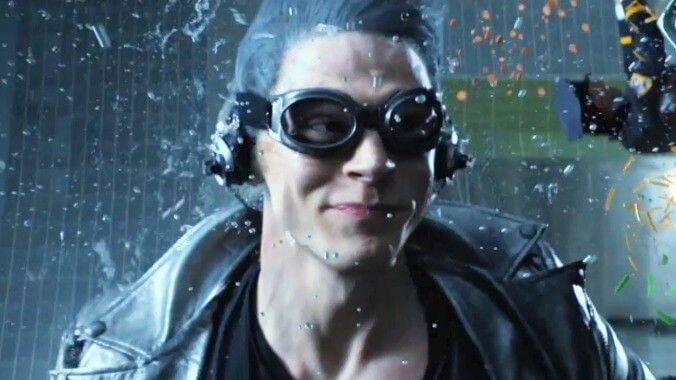
Lots of movie superheroes only get one great scene to show off their powers, if that; Evan Peters’ Quicksilver gets two absolute bangers, in , and then its follow-up, . The Apocalypse scene, especially, is a masterclass of a character showcase, with Peters exuding effortless chill as he races through a mid-explosion X-Mansion, saving the entire school without breaking a sweat. (All that and we got his “return” in the MCU’s five years later, a hilariously dickish misdirect from the streaming series.) [William Hughes]
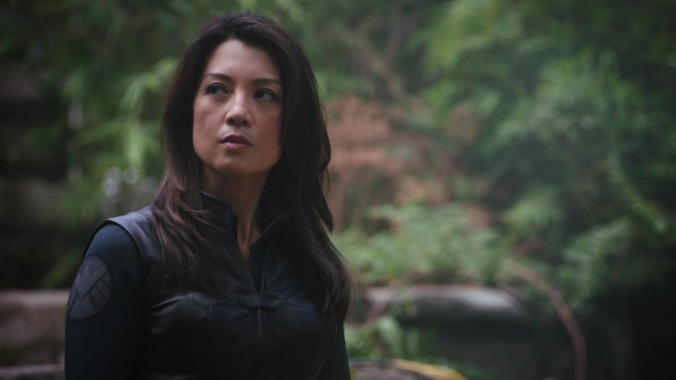
It was evident that Ming-Na Wen’s turn as Melinda May, a.k.a. The Cavalry, was going to leave a mark as soon as she uttered her first word on ABC’s : “No.” A badass fighter, an independent observer, and even then, a crucial team player, Agent May is a force to reckon with. No one really wants to get on her bad side. Over the course of seven seasons, her sublime character evolution focuses on how she supports Coulson and Co. while coming to terms with her own dreary past. Despite the ups and downs, Wen brings pulsating energy to Agent May, finding ways to balance her dry dialogue delivery with genuine sentimentality. Hopefully, she’s still out there somewhere teaching at S.H.I.E.L.D.’s Coulson Academy, just waiting for the right way to integrate back into the field. [Saloni Gajjar]
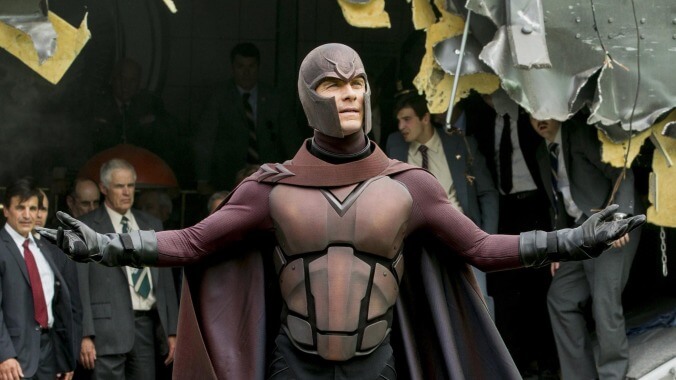
In comic book movies, the recasting of Magneto and Professor X was probably the most significant since Val Kilmer took over for Batman. These actors are canon, integral to the acceptance of superhero fiction in the mainstream. Sir Ian McKellan and Sir Patrick Stewart lent credibility to these movies, and their efforts were not undermined by their replacements, particularly Michael Fassbender’s Magneto. In , Fassbender leans into his training by hunting down and killing Nazis. Is there a better plot for a movie? McKellan may have nailed the world-wearniess of Erik Lensherr, but Fassbender’s fascist terminator actually made him scary, taking out bootlickers with nothing more than a little pocket change. [Matt Schimkowitz]
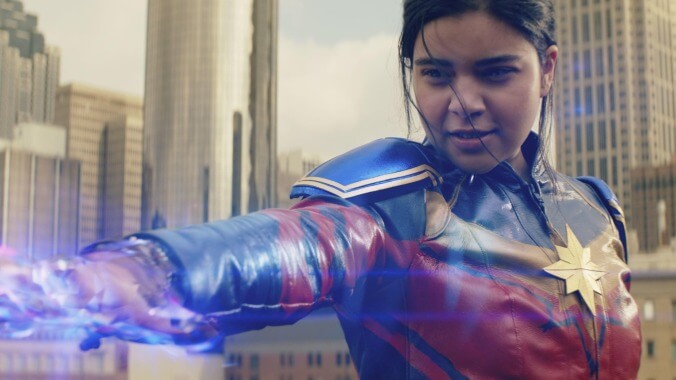
Admittedly, it feels like we’ve only just met the MCU’s version of Kamala Khan, effervescently brought to life by newcomer Iman Vellani in Disney+’s . Yet it only takes about five seconds into the show to fall in love with her. The 16-year-old Pakistani American discovers her inherent powers (thanks to wearing an ancestor’s bangle) while at an AvengerCon no less. She’s a walking-talking superhero fangirl whose coming-of-age now includes battling villains and, soon enough, fighting alongside her idol, Captain Marvel (Brie Larson). Kamala’s success is honestly a win for nerds all over. Series creator Bisha K. Ali, Vellani, and the rest of the team ensure that neither Kamala nor her culture become caricatures in any way. Her introduction is just the start of Marvel’s next phase, and even though her full transformation will probably occur during this year’s , Kamala Khan has left an unforgettable first impression. [Saloni Gajjar]
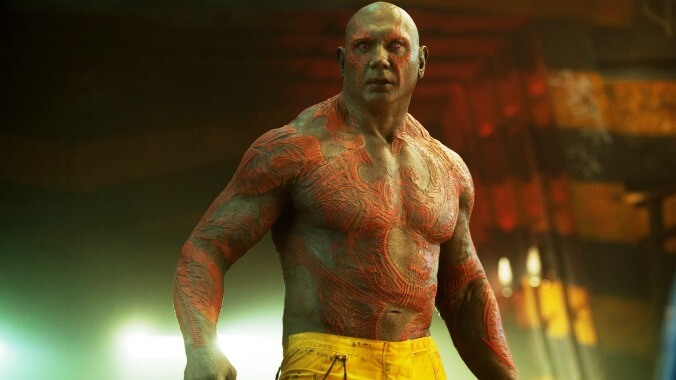
It sure feels like the MCU’s version of Drax the Destroyer could be easily written off purely as comic relief despite his tragic past. However, in all three movies as well as , , and the , Dave Bautista infuses Drax with humor (the taking metaphors literally bit will never, ever get old). But he also brings a certain warmth to him, whether it’s through eventual friendships with his team, especially Mantis, or helping them in all their cosmic adventures. Drax is more than just muscle and tattoos thanks to James Gunn’s vision of the character. [Saloni Gajjar]
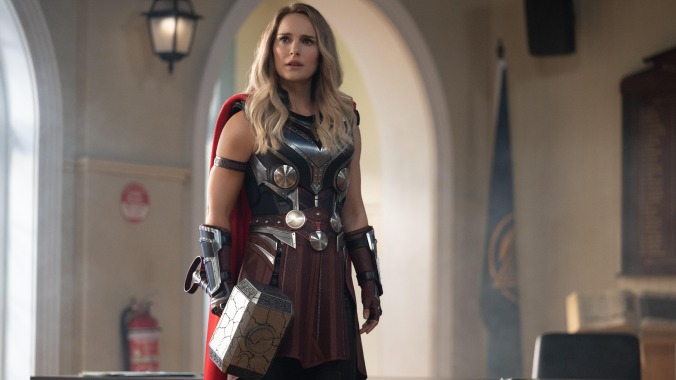
It’s a shame Natalie Portman’s Jane sat out , but she more than made up ground in the franchise’s subsequent installment—and as the title character, no less. Taika Waititi’s new film gives the character an opportunity to participate in all of the typical day-saving and hero-posturing, but with exactly the right kind of science-nerd awkwardness that made this STEM woman a wonderful counterpart to Thor’s hunky confidence. juxtaposes Jane’s transformation into Mighty Thor with a decidedly mortal source of vulnerability, detailed in Jason Aaron’s comics run that inspired the film, which lets the riveting-as-always Portman flex more than just her physical muscles. (But yes, her biceps make her more than worthy of inclusion on this list.) [Jack Smart]
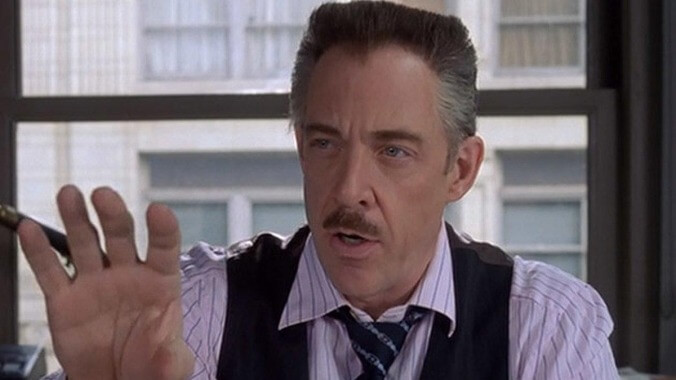
God, but what a gift Sam Raimi found in J.K. Simmons. It’s so impossible to imagine anyone else embodying Spider-Man’s cigar-chomping, screwball energy’d, endlessly bloviating boss/nemesis J. Jonah Jameson, in fact, that Marvel Studios didn’t even bother to try—instead just bringing Simmons back for an updated take on the character for . And why not? Hilarious when he’s happy, riotously funny when he’s mad; who could possibly beat J.K. as JJJ? [William Hughes]
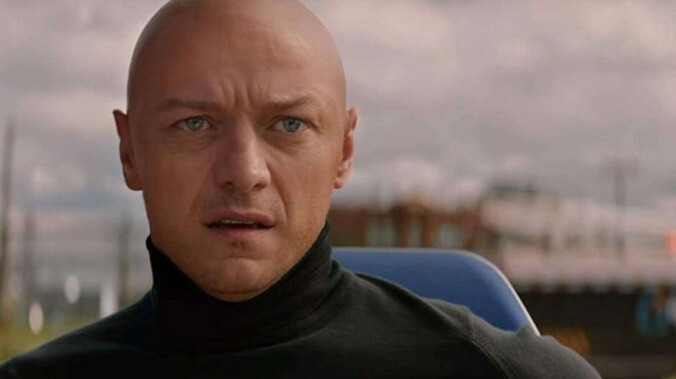
rejuvenated the X-Men franchise, and it wouldn’t have been possible without McAvoy at the center as the brilliant, idealistic young Charles Xavier. What he lacks in Patrick Stewart’s patriarchal wisdom he makes up for in charisma and enthusiasm. This version of Professor X makes a lot of mistakes, but it’s easy to see why his team gives him their trust and loyalty. Over the course of the films, McAvoy does a great job of tempering Xavier’s initial optimism with the difficult decisions he has to make to protect his fellow mutants. Not to mention his friends-to-enemies-to-reluctant-allies chemistry with Magneto (Michael Fassbender) is the stuff of fandom legend. [Mary Kate Carr]
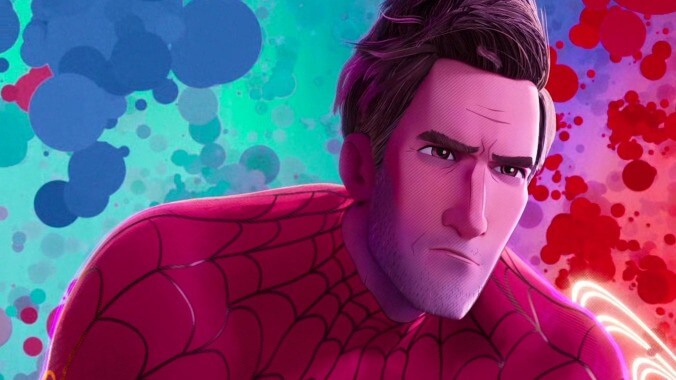
There’s an element of hangdog failure that runs through any great version of Peter Parker, and nobody does hangdog failure better than Jake Johnson. But even if Johnson’s Peter B. Parker (from 2018’s deliriously good ) has taken some hits—busted marriage, broken back, bankrupt Spider-Man-themed restaurant—he’s still, well, Spider-Man. And his mentorship of student Miles Morales, and his subsequent rise to heroism, proves it: Even when a Spider-Person is down, you can never count them out. [William Hughes]

The appeal of Rebecca Romijn’s Mystique was, well, mystique, which is not Jennifer Lawrence’s strength as an actor. Where her predecessor was cool, Lawrence brings her characteristic fire to the younger version. It works because of her backbone of steel, with shoulders means tested to carry a franchise. She can hold her own when caught between two very different and formidable idealogues. She’s at turns a team player, a rogue agent, and a leader in her own right. Whereas in the original trilogy, Mystique was more of a supporting character, Lawrence’s version is a star, and acknowledged within her altered timeline as an advocate for mutantkind. [Mary Kate Carr]
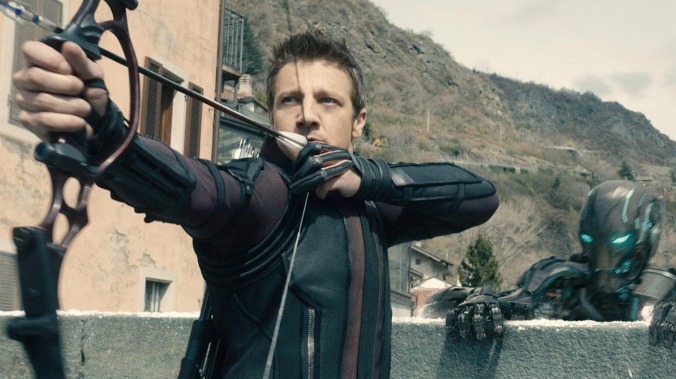
The most “human” Avenger is at his best when connected to those human elements—whether chilling at his idyllic farmhouse with wife Laura (Linda Cardellini), or trading quips with unwanted protege Kate Bishop. The MCU Hawkeye is, admittedly, way too given to brooding, in ways that do star Jeremy Renner no favors. But when he’s allowed that lighter, funnier touch, he’s a cornerstone of the more human side of these vast and cosmic conflicts. [William Hughes]
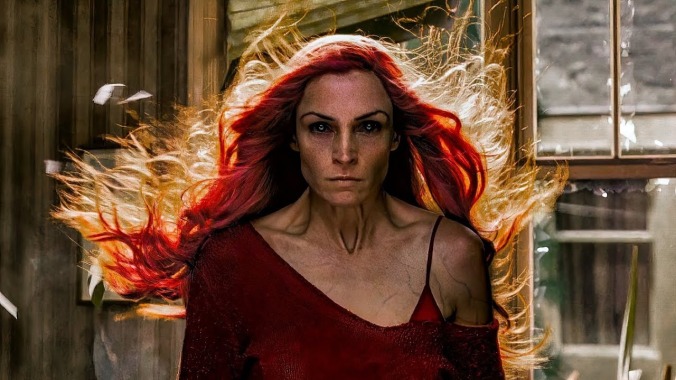
Famke Janssen’s Jean Grey feels like a relic of a superhero movie past. But Janssen’s compassionate and dignified performance with this ticking time-bomb of a character feels like one that never got its due—despite two largely derided adaptations of the classic “Phoenix Saga.” Janssen is the emotional anchor of those early movies, setting a high standard for psychological honesty as a method to cut through some overwhelming X-Men lore that requires a Cerebro to decode. Watching Janssen’s big Moses moment during 's climax, it’s clear that she’s a pioneer in these massive CGI set-pieces, which were still in their infancy. Performing against tennis balls wasn’t the required acting skill it is today, and yet she feels emotionally committed to the ones and zeroes that surround her. She nails the finale to X2, a movie that, for a time, was the standard-bearer for all superhero sequels. [Matt Schimkowitz]
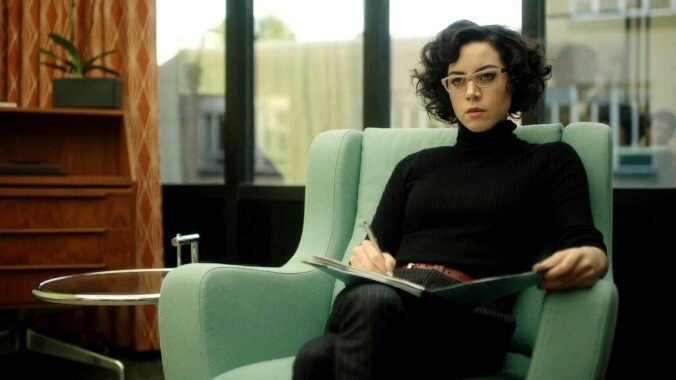
This entry is a little tricky, given that we’re talking about a shape-shifting psychic “demon” with a tendency for deception and theatrics. But if you’re looking for a truly memorable Marvel villain turn, it’s hard to top Aubrey Plaza as the temporary host for classic Professor X nemesis Amahl Fahrouk, literally dancing her way through the twisted mind of Xavier’s poor, damaged son, David Haller, in Noah Hawley’s . Navid Negahban would later take over the part in the waking world, but Plaza—and the horrifying blob of CGI known as the Devil With Yellow Eyes—made for a hell of an introduction for the character in the show’s first season. [William Hughes]
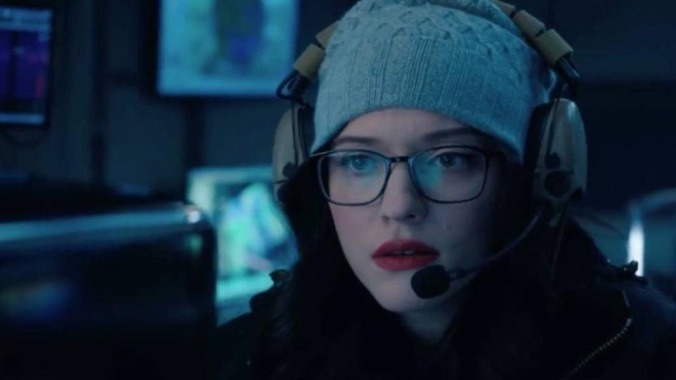
Regular ol’ humans are a rare commodity in the MCU, to the point that one of our best working examples is an astrophysicist capable of hacking high-level government databases on a moment’s notice. Originally introduced as the one funny bit of the movies (before Thor got funny), Kat Dennings’ Darcy really came into her own when she popped up again in , serving as a cheerfully sarcastic surrogate for all those viewers who just wanted to watch Wanda and Vision have some fun sitcom antics, without all that creepy stuff getting in the way. [William Hughes]
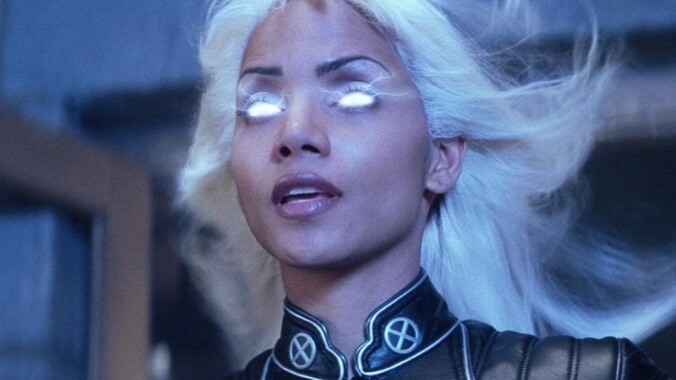
There’s a reason Ororo Munroe is one of the most beloved mutants in the pages of Marvel Comics. Whether she’s got her hair cut into a mohawk or she’s back to her old ways as an African weather goddess, the extraordinary creature known as Storm is a force to be reckoned with, an authority even when she’s not team leader. Halle Berry’s version of the character was saddled with a less-than-impressive set of duties, not to mention of all time, but Berry still managed to get certain qualities of the comic book icon across. Her Storm wasn’t a booming-voiced goddess, but she was a compassionate mutant sister who could give a personal touch to even the most elaborate sci-fi spectacles, and that counts for something. [Matthew Jackson]
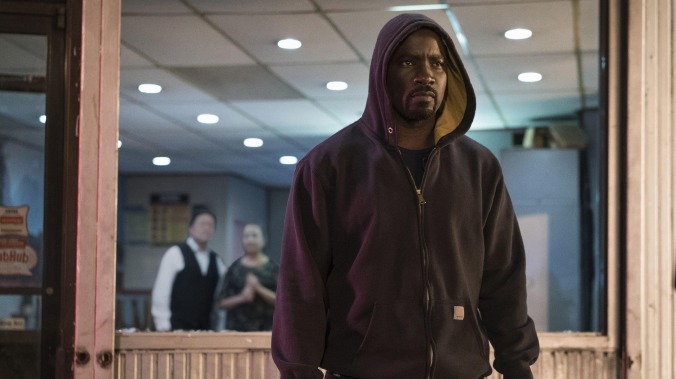
Like most of the characters on this list, Luke Cage has cool superpowers—unbreakable skin, superhuman strength, general crime-fighting badassery. But unlike other heroes that tick those boxes, Marvel dared to include political implications in the character’s design; the idea of a bulletproof Black man can’t help but reflect and rebuke America’s legacy of anti-Black racism. Born in comic book form amid the success of Blaxploitation films, then updated for the small screen in 2016’s series, this Harlem icon is notable as much for his tender heart as his physical brawn. And who better to unite those two qualities than Mike Colter? Here’s hoping the actor was serious when he recently suggested he’d be open to returning to playing Luke. [Jack Smart]
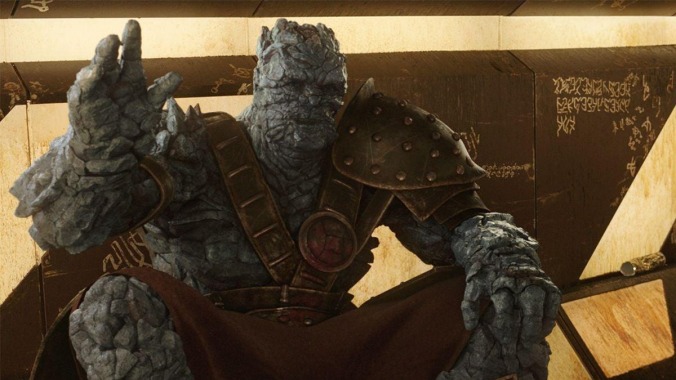
Taiki Waititi has gotten a lot of credit for injecting some real humor into the sometimes too-serious Marvel Cinematic Universe, never more literally than when he voices Thor’s big friendly rock buddy Korg. Korg’s not just a philosopher, a solid buddy, and a decent fighter: He’s also the single funniest character in the entire MCU, an endlessly cheerful Kiwi rock man who never has a bad thing to say about anyone—except his mom’s boyfriend, who he hates. Piss off, ghost! [William Hughes]
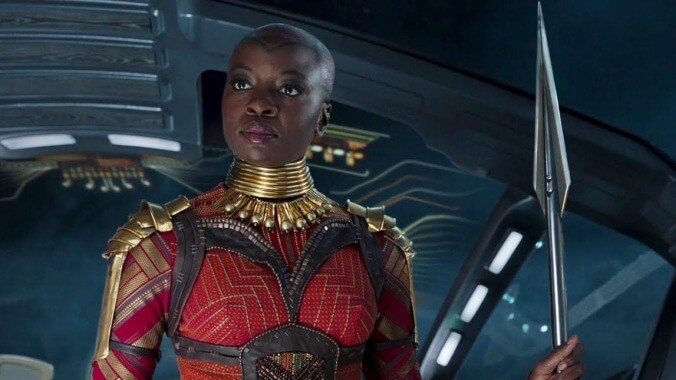
First off: A round of applause for Okoye being the MCU character with one of the funniest lines in , a movie littered with superheroes, villains, and whatnot. Danai Gurira’s exasperated line reading of “Why was she up there?” about Wanda is imprinted in our brains forever. It’s also a good example of how Gurira brings Okoye splendidly to life. A fiercely loyal Dora Milaje warrior, Okoye isn’t afraid to speak her mind, whether it’s to King T’Challa or absolutely anyone else. With her dry wit, insane fighting skills, and a high-tech Midnight Angel armor suit designed by Shuri, it will be exciting to see Okoye grow beyond Black Panther: Wakanda Forever. [Saloni Gajjar]
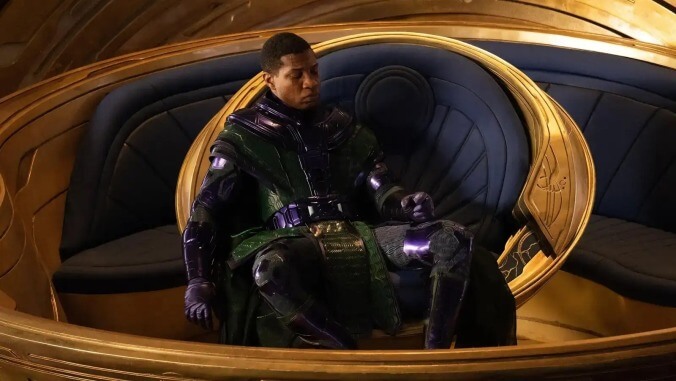
The thing about Kang, this early in his introduction to the MCU, is we reserve the right to change his ranking in future. We met a character going by He Who Remains in season one, who claimed he was a variant—an important term in the MCU’s upcoming multiverse-jumping phase—of the villainous Kang the Conqueror. Then in , a sinister version of Kang claims he was exiled to the Quantum Realm. Stick around post-credits for possible explanations of the character’s origin story and trajectory. Once referred to by Kevin Feige as “the new iconic villain in the MCU,” nearly all versions of Kang are obsessed with alternate timelines and realities. That ties neatly into the multiverse theme of phase 5, culminating in , due in 2025. One complication in that plan involves actor Jonathan Majors, who has portrayed all the variants of Kang introduced so far and has been accused of domestic violence. Majors denies the charge and Disney has yet to comment publicly on the matter. Still, early on in the MCU, Marvel swapped out Terrence Howard for Don Cheadle as James Rhodes, with little effect on the quality of the films. So it wouldn’t be out of the question to do the same thing with Kang, preserving an interesting character while distancing the company from the controversial actor. [Jack Smart and Jen Lennon]
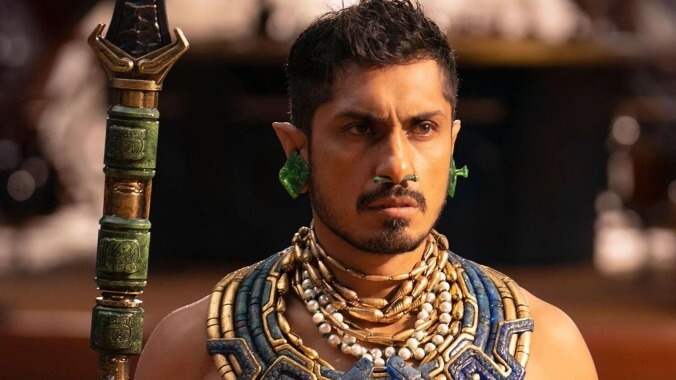
When he first appears in , Namor seems like he’s fighting a just cause—he just wants to protect his underwater kingdom from an invasion of surface dwellers. Of all people, the Wakandans can relate, since the two kingdoms actually have a lot in common. Like Wakanda, Talokan has survived this long by keeping its existence a secret, and both owe their survival to a cache of vibranium. This could make them natural allies, except for one little difference. Namor only values the lives of his own people, and believes the best way to protect them is to wipe everyone else out. Tenoch Huerta does a great job of selling Namor’s initial charisma, but that’s the stuff of pure villainy. [Cindy White]
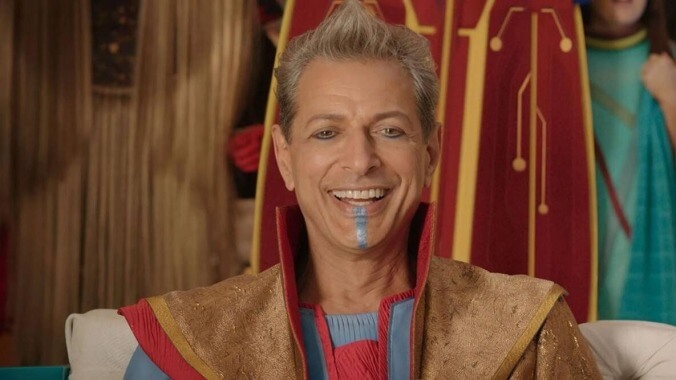
As with his in-the-comics-only brother The Collector, your mileage for ’s villainous Grandmaster will vary pretty much entirely on how you feel about his performer; in this case, Jeff Goldblum, running with his condescending smarm at something close to its maximum setting. Like much of Ragnarok, Goldblum’s gladiatorial dictator is mostly just there for fun (Goldblum’s as much as anyone else’s), schmoozing with Loki, casually bullying Thor, and just generally seeming to have a Hel of a good time. [William Hughes]
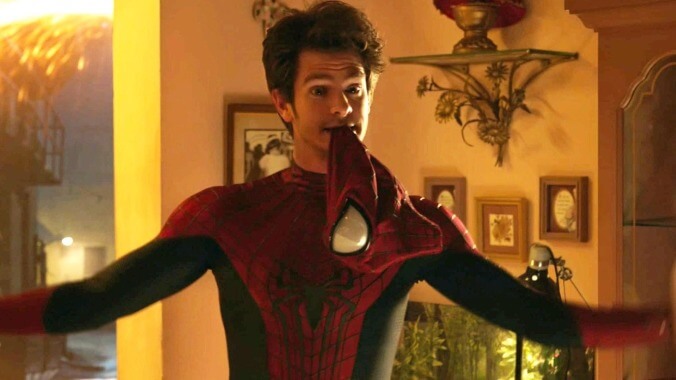
It’s not Andrew Garfield’s fault that his tenure as Spider-Man devolved into a series of story decisions that were less about narrative and more about blatant, brick-by-clumsy-brick franchise building. Over the course of two often frustrating films in the 2010s, Garfield proved he was destined to be recognized as one of his generation’s finest actors with a beautifully orchestrated, often surprisingly moving take on Peter Parker. His ability to extract emotion from even the most ridiculous of comic book contrivances made the films all the more watchable, and his brief return in reminded everyone just how much we missed his bittersweet smirk. [Matthew Jackson]
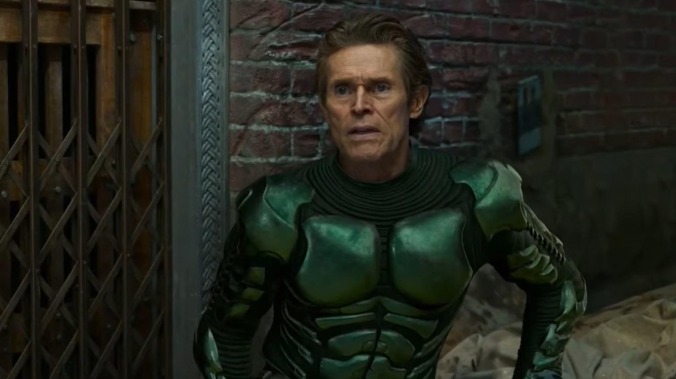
The first of Peter Parker’s surrogate father figures to try to murder him, Norman Osborn is a tragic villain in the classic mode. As played by Willem Dafoe in Sam Raimi’s (and then again late last year, in an unexpected reprise), Osborn is all charm and rage, a man smart enough to feel his brilliant mind slipping over the edge into homicidal madness—he’s a bit of a scientist himself, you know—but incapable of keeping the malevolent Goblin at bay. [William Hughes]
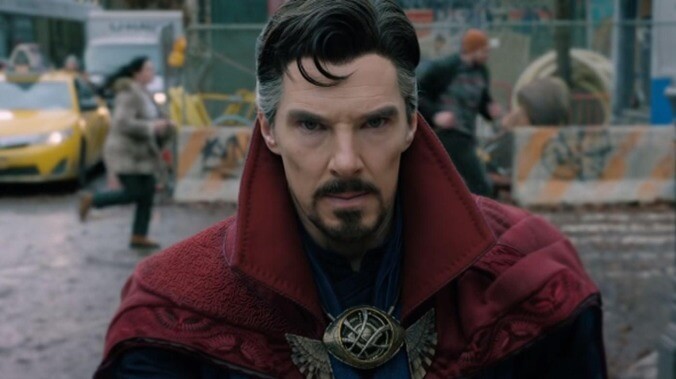
A self-centered man who worships his own ego and is at the top of his field suffers through a traumatic event that makes him question his belief in himself. We’re not talking about Tony Stark, we’re talking about Doctor Strange, and while both of them have similar histories and approach life with the same too-cool-for-school attitude, an important distinction is that Tony Stark loves being the face of the MCU and Doctor Strange thinks everyone who darkens his doorway—be it Hulk falling from space or Peter Parker with a dangerous favor to ask—is an asshole. His trials and tribulations don’t make him a better person, they just make him a person who better understands the stakes in any given situation. That’s why everyone blamed Star-Lord for Thanos’ victory and nobody blamed Doctor Strange. We all trusted that he knew what he was doing.[Sam Barsanti]
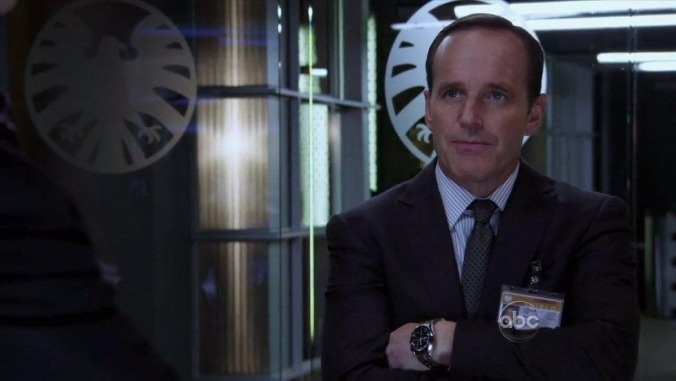
It really feels like Phil Coulson has nine lives. After being almost killed by Loki in , Coulson didn’t just survive but thrived in ABC’s for seven goddamn seasons. In running his own team, becoming a father figure to Daisy Johnson, and eventually coupling up with Melinda May, Coulson transformed into one of the most pivotal non-powerful S.H.I.E.L.D. characters. Marvel’s technically given him more screen time than most other superheroes, and Clark Gregg has milked it for all its worth. That itself should be celebrated. [Saloni Gajjar]
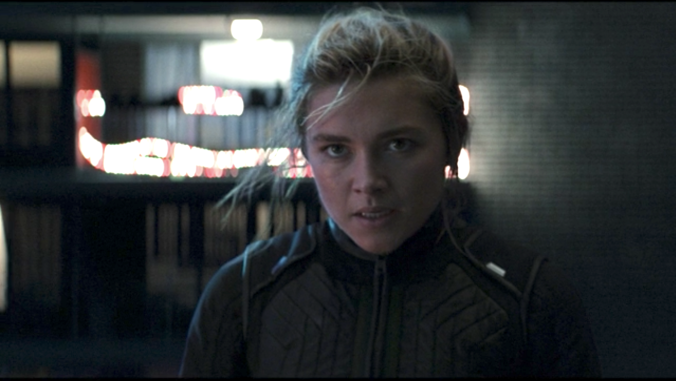
Given how long fans had waited for a movie, expanding on Natasha’s origins was a tall order. Luckily, casting Florence Pugh as Yelena was a slam dunk. Not only did she hold her own playing off of Scarlett Johansson, she made the prospect of someone else taking up the Widow mantle exciting. Crucial to her character is a childlike playfulness that she held onto despite the extreme conditions of growing up as part of the Red Room. As a bonus, gave us a taste of the next generation of Marvel when Yelena faced off with Kate Bishop (Hailee Steinfeld), and the future looks fun—and completely badass. [Mary Kate Carr]
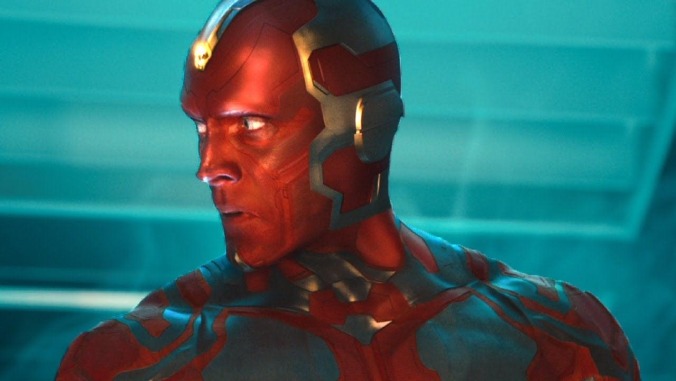
Born from a combination of lightning from Thor’s hammer, the power of the Mind Stone, and a vibranium body designed by a rogue AI, Vision’s (Paul Bettany) birth in signaled the arrival of the mightiest of Earth’s Mightiest Heroes. Who could forget the surprising moment the newborn J.A.R.V.I.S. turned formidable machine wielded Mjolnir—at the time an anointed ability thought to be exclusive to the God of Thunder himself. But when Vision returned in , he spent most of his screen time babysitting (and romancing) Wanda Maximoff and mainly acted as a voice-of-reason spectator during the film’s climactic airport battle. By the time came around he was nerfed even further after being crippled by Corvus Glaive’s blade, depriving us of more of the Vision’s phasing and energy-projection badassery. And of course, he died, not once, but twice at the hands of Thanos. Much like Wanda, we grieved his tragic death. But his thought-provoking line—“What is grief, if not love persevering?”—was so eloquently spoken during ’s eighth episode that , making many of us fall in love with the charismatic synthezoid all over again. [Gil Macias]
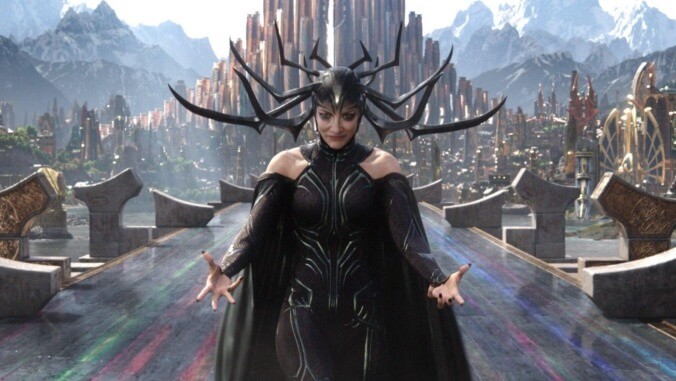
It’s not going too far out on a limb to say Cate Blanchett changed MCU antagonists forever. As Hela in Taika Waititi’s , she brought the signature gravitas and charisma we might expect from an Oscar-winning actor. But the performance wasn’t about prestige—she was just having a blast in lycra and mascara. (Part of the novelty of this bad guy, of course, was that she wasn’t a guy; it shouldn’t have taken Disney this long to consider gender parity in this universe.) The most remarkable thing about Blanchett’s ability to make us root for the vengeful and violent goddess of death is the simplicity of the character’s premise: something about being Odin’s secret child, and in prison? It doesn’t matter, because when Hela busts Thor’s hammer to pieces, Blanchett manages to upstage some of the MCU’s most iconic characters in one of its most fun films. [Jack Smart]
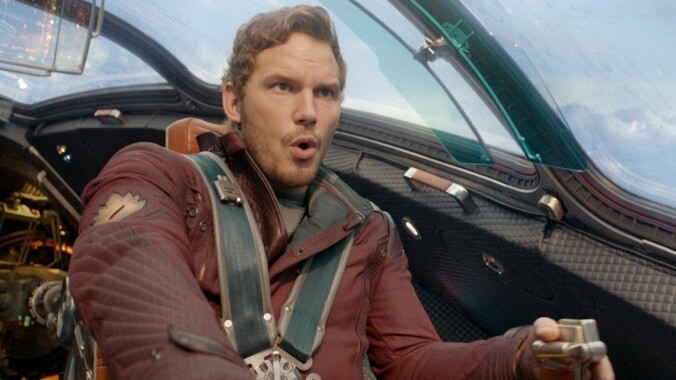
The secret to Star-Lord, and the thing that makes the character work in a way that , is that he’s a low-status character who isn’t fooling a single person into thinking he’s high-status. Chris Pratt acts like Han Solo in the role, but everyone around him treats him the way you’d treat someone who acts like Han Solo: by constantly rolling their eyes and showing him exaggerated “We Are Groot”-level affection when he cuts the BS and actually behaves like a normal guy. The best part is that it’s not totally clear if Chris Pratt even knows why that makes the character work, so when it does—like the “am I supposed to say Jesus?” gag—it feels like the movies are getting away with something and tapping into an aspect of his talent as an actor that nobody else has captured. [Sam Barsanti]
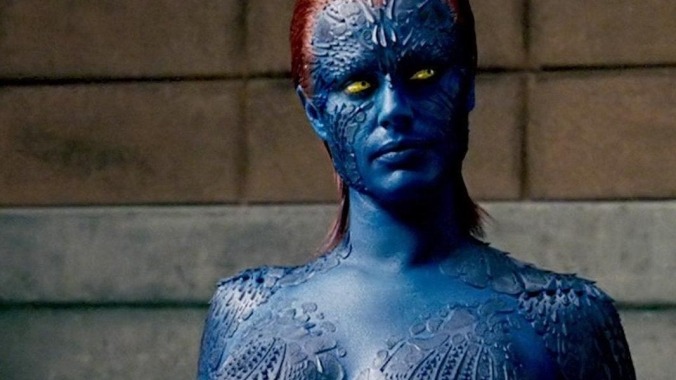
Based on her shapeshifting abilities, Raven Darkhölme, a.k.a. Mystique, is one of the coolest mutants in the films. And when Rebecca Romijn’s version of the character arrives, already using her powers for evil, you know she’s going to crush it as an antiheroine. Mystique is comfortable in her skin in these films, and her unmatched confidence makes her instantly likable, even while she’s impersonating politicians to do Magneto’s bidding. Romijn brings a quiet charisma to the role, particularly when Mystique is stripped of her powers in because of the cure. [Saloni Gajjar]
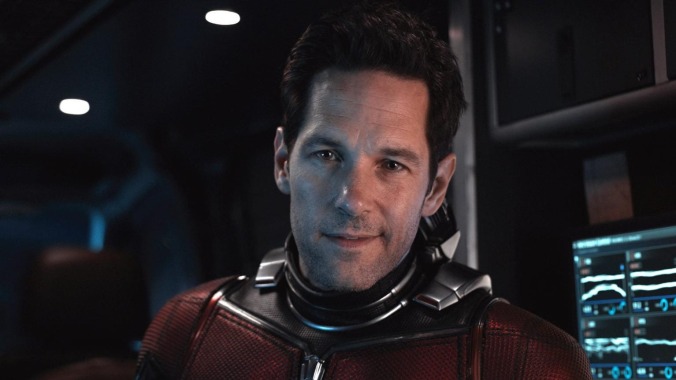
The success of the first film meant it was only a matter of time until more lovable losers made their way into the MCU fold, and thankfully the first follow-up with that formula happened to star Paul Rudd. Rudd’s natural likability, good looks, and knack for quick humor fit perfectly into the MCU’s populist dynamic, but his Scott Lang also never felt like a cookie cutter version of other heroes. Sure, is just “ with a different suit” in terms of plot, but Rudd’s master-level balance of comedy and wild, expository Marvel dialogue kicks everything up a notch. He’s a blast to watch, even if the movies surrounding him sometimes aren’t. [Matthew Jackson]
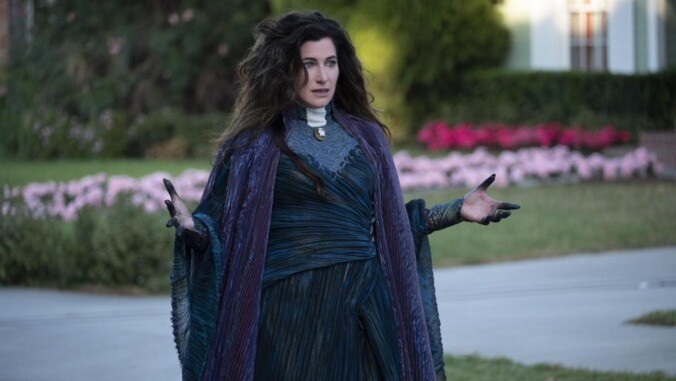
No one’s having a better time in the MCU than Agatha Harkness (well, until the end of , that is). The Disney+ series slightly pulls back the curtain on Agatha’s thirst for magic—it’s why she arrived in Westview, after all. She just had to know (and steal) Wanda’s power, which allowed her to brainwash a whole town and manifest two kids. In the process, Agatha is established as a snarky, cunning, and inventive villain, arguably the most fun baddie in the MCU so far. That’s in large part due to Kathryn Hahn’s pitch-perfect casting. After all, who else in Marvel’s empire managed to get their own Emmy-winning song? It’s no wonder Kevin Feige decided to give her a spin-off. Look for Agatha: House Of Harkness, coming soon to a small screen near you. [Saloni Gajjar]
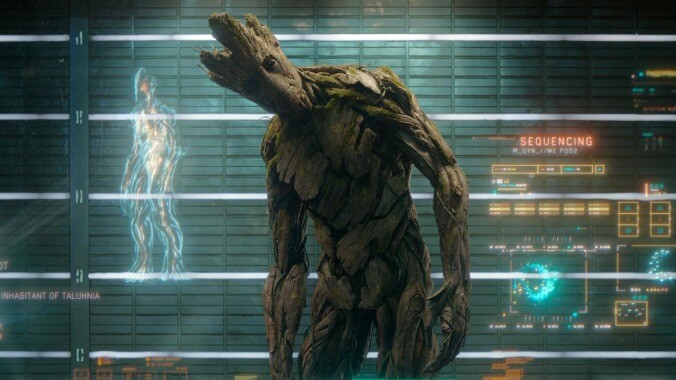
Throughout his appearances, Groot has traversed an impressive amount of ground both emotionally and psychologically, considering the only line he can utter is “I am Groot.” At first he’s a wizened old Flora colossus, able to lay waste to bad guys with his twisting branches, although he prefers to proffer cute little flowers. Then he’s a baby in a potted plant, so adorable it’s absurd. Then he’s a teenaged tree, alternately sulking and throwing tantrums in front of Rocket and the other Guardians. Finally, he’s fully grown again, not quite as wise as he once was, but getting there. Casting director Sarah Halley Finn doesn’t get enough credit for populating the MCU, and nowhere is that more apparent than with Groot, who is improbably voiced by none other than Vin Diesel. What a weird yet perfect choice for such a singularly charming character. [Jack Smart]
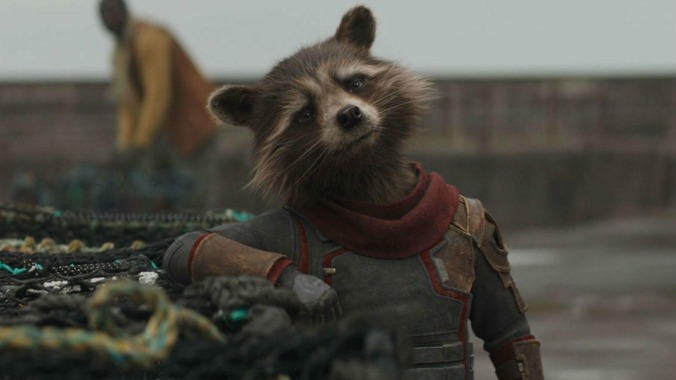
I could try to distill all the reasons Rocket Raccoon is such a beloved MCU character, a sardonic scene stealer in every movie who, despite being a CGI-animated raccoon voiced by Bradley Cooper, can pack an emotional punch just as easily as crack us up. But the whole appeal of this character can be found in a singular moment, in 2014’s first Guardians outing. Mapping out a prison break to his co-conspirators, he lists all the items they’ll need and steps to take. He points to another inmate walking by: “I need his prosthetic leg.” Later, when all hell has broken loose and the Guardians are attempting their escape, Star Lord delivers the leg. “Oh I was just kidding about the leg,” Rocket says without batting an eye. “Was it funny? What did he look like hopping around?” Never change, trash panda. [Jack Smart]
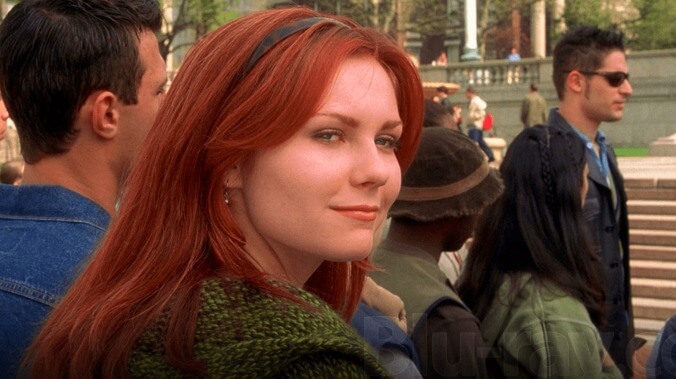
In playing the trilogy’s Mary Jane Watson, Kirsten Dunst had a seemingly impossible task: Portray a girl-next-door/budding actress so winning that she’d give Tobey Maguire’s Peter Parker a reason to keep fighting, and the occasional reason to give up the mask entirely. Dunst nailed it, though; her Mary Jane, despite having to pull occasional damsel duties, is brave, funny, independent, and cool—the kind of heroine who could bust out a “Go get ’em, tiger,” and make you believe she meant it. [William Hughes]
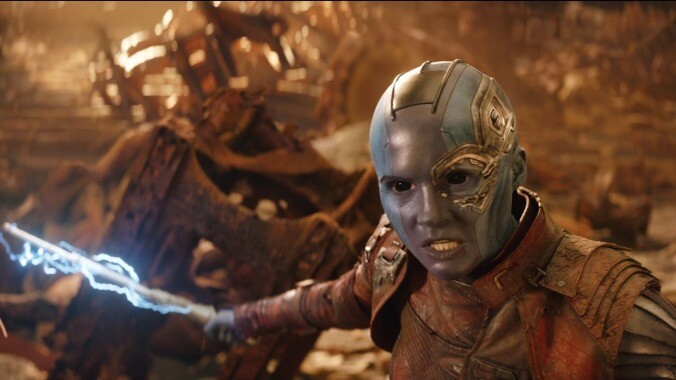
Introduced as a villainous tortured soul who ends up playing a pivotal role as a full-blown Avenger during the Infinity Saga, Nebula is one of the most complex and compelling characters in the MCU. According to Karen Gillan, Nebula was originally going to be rendered space junk during the events of . Good thing for us, that wasn’t the case, as the adopted daughter of Thanos went on to deliver one of the most satisfying redemption story arcs of any Marvel villain. Who would’ve thought the rage-fueled “Blue Meanie” would go from wanting to kill her sister Gamora (Zoe Saldana) to saving Gamora’s life by terminating her own past self? Other moments, such as Nebula comforting an emotionally distraught Rocket Raccoon or sharing her last rations with a fading Tony Stark showed just how far she had come. Turns out there was a heart and soul beneath that cybernetic exterior after all. [Gil Macias]
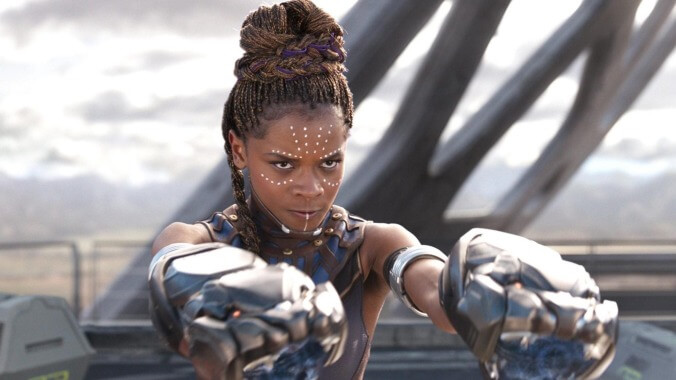
Princess Shuri (Letitia Wright) became an instant fan favorite when she was introduced in and immediately started roasting her brother. Part of what makes her so great is that she brought out a playful side to the reserved, regal T’Challa (Chadwick Boseman). Though we never got to see her go toe to toe with Tony Stark (Robert Downey Jr.), she’s probably the most-genius genius currently in the MCU. Her inventions elevate not only Wakanda’s long-standing tradition of the Black Panther, but the country itself. As strong as the Black Panther ensemble is, the idea of making another film without Boseman just wouldn’t be feasible without a character as brilliant, compelling, and fun to watch as Shuri. Wright’s anti-vax controversy notwithstanding, her character’s evolution into the new Black Panther in Wakanda Forever is really exciting. [Mary Kate Carr]
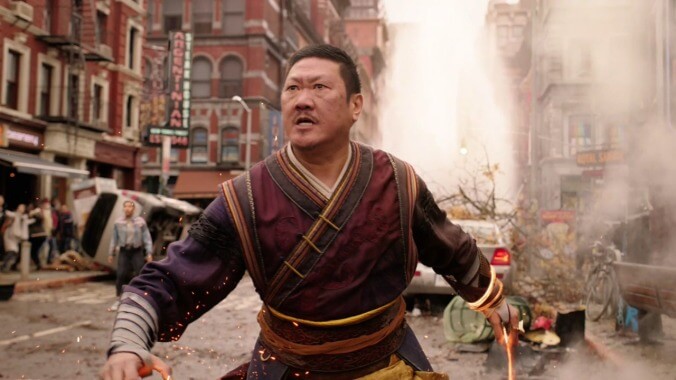
Wong is a badass. What else is there to say? He’s faster, smarter, and better informed than his “boss,” Stephen Strange, to the point that his post-Blip assumption of the role of Sorcerer Supreme feels only right. Balancing an actual sense of responsibility for the cosmic balance with a wild sense of fun—that cameo really is the best, huh?—Benedict Wong plays the character as the guy you could genuinely trust to keep the Earth safe from all the stuff Strange can’t be bothered to fix while he’s busy breaking reality all over again. [William Hughes]
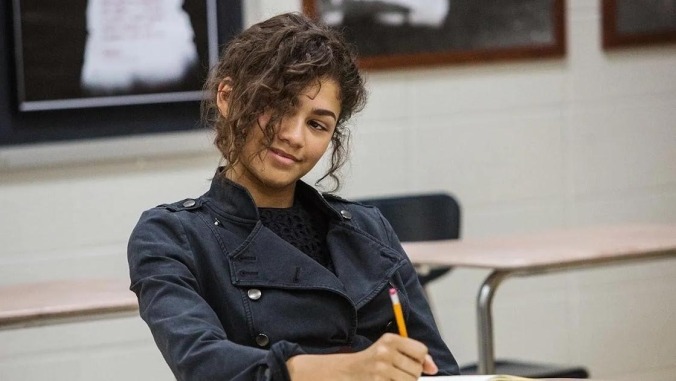
Mary Jane Watson is a beloved comic book character. Peter Parker’s quick-witted love interest might not have web slingers of her own, but she sure doesn’t back down from a fight. So it was nice to see Zendaya step into MJ’s shoes and elevate her further, even if it’s quite a spin on the role. Michelle-Jones, a seemingly tough kid who is actually quite a softie, is a breath of fresh air, even when she’s not starting up a romance with Tom Holland’s Peter. She’s essentially a scene-stealer (Remember in when she drops the info that she knows about Peter’s identity? So great) but MJ isn’t just comic relief. She has a well-developed personality and a strong voice, and thanks to Zendaya’s performance, it’s easier than ever to root for MJ. [Saloni Gajjar]
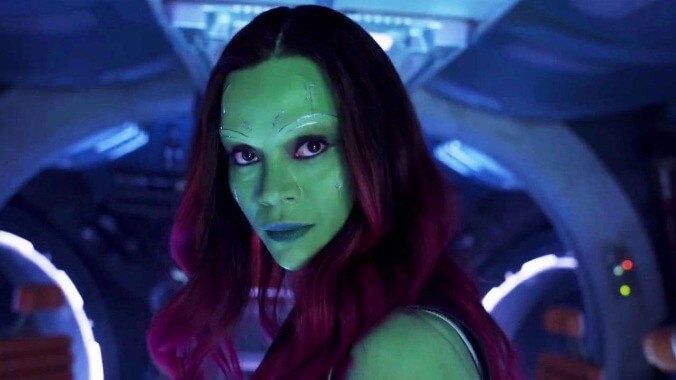
Gamora is in many ways a quintessential Marvel character: complicated backstory, kickass abilities, a dubious morality that ultimately leads to heroism. Adopted and turned into a deadly combatant by Thanos, she becomes a reluctant Guardian of the Galaxy—the crew’s most deadpan member, and probably its most vicious—and reckons with the paths she’s taken and the wrongs she wants to right. Zoe Saldaña embodies the character with a performance that entertains and illuminates. Between Gamora, , and , the actor is something of a sci-fi icon, so it comes as no surprise she can tie wild plot swings to real emotional stakes, as with that heart-wrenching scene opposite her adopted father in 2018’s . She also nails her performance as an alternate-timeline version of Gamora in and , finding a new way to play the character that still feels authentically Gamora. [Jack Smart]
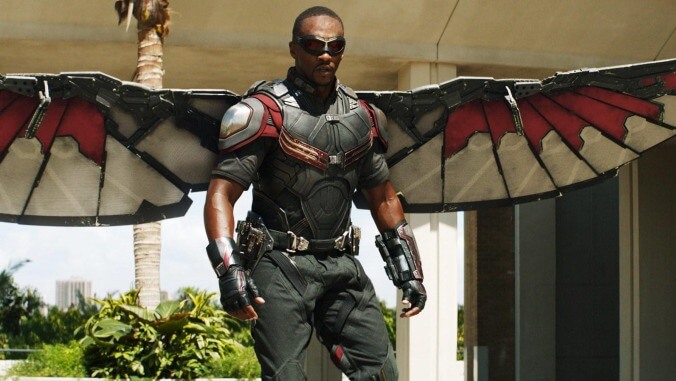
The reason Sam Wilson (Anthony Mackie) was the right choice to inherit Captain America’s shield is the same reason he and Steve Rogers (Chris Evans) became friends in the first place. As Falcon, he’s a steadfast, reliable, loyal friend, a fellow veteran who is dedicated in service to his country but not a blind follower of government edicts. But as a Black man, carrying such a quintessentially American symbol is a more complicated, nuanced endeavor, as explored in . As his position as an Avenger evolves, Sam’s confidence, sense of humor, and commitment to duty remain part of what makes him such an excellent character. [Mary Kate Carr]
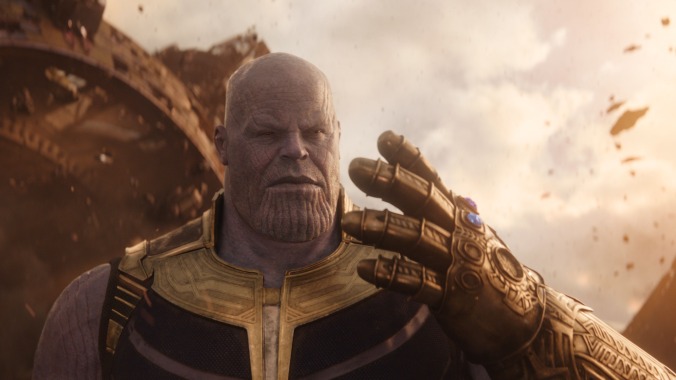
The most significant thing MCU Final Boss Thanos did during his tenure as Big Bad wasn’t the bit where he snapped his fingers, wiping out half the population of reality. No, it’s what came after when, true to his word, he laid down his weapons and tried to retire in peace (albeit in what turns out to be a not-so-grateful universe). Portrayed with a cold, weary nobility by Josh Brolin (with just a few sparks of petulant sadism for good measure), The Mad Titan is a true believer in the rightness of his plan to “balance” existence, which is exactly what makes him so iconic, scary, and, dare we say it … relatable. [William Hughes]
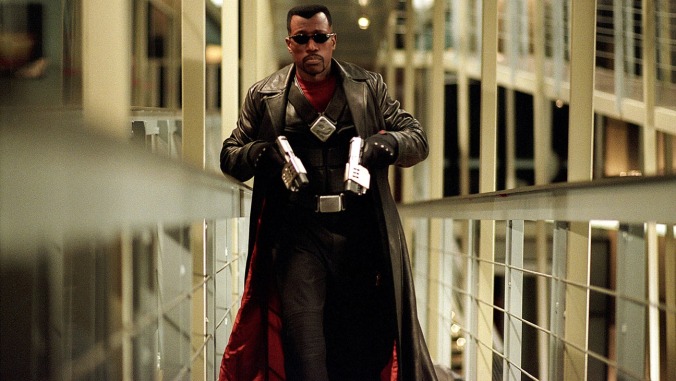
It didn’t launch a franchise and single-handedly change the entire entertainment industry, but Wesley Snipes’ performance as the vampire hunter Blade is easily as iconic as Robert Downey Jr.’s Iron Man. He completely belongs in the world of the movies, at least the two good ones, but he’s also so cool and the performance is so fully realized that you could drop him into any other movie and you’d just have to accept that an ice-cold, day-walking half-vampire just showed up and made everyone else look like a dork. Hell, Snipes’ Blade is so unforgettable that it’s a wonder that Disney and Marvel Studios think it’s possible to live up to it at all, in the lead role … but, then again, as a wise man once said, . [Sam Barsanti]
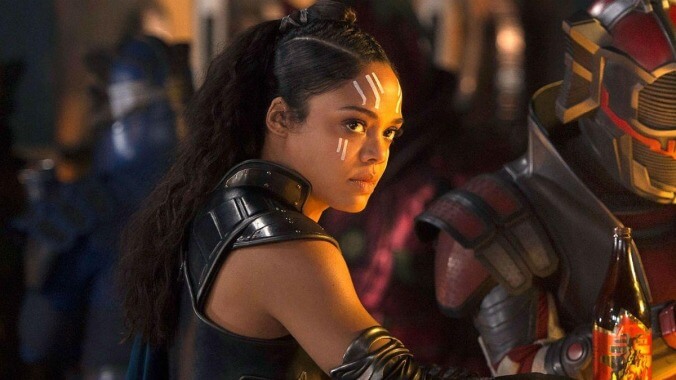
There are many reasons was a shot in the arm for the franchise, and a big one is Valkyrie (Tessa Thompson). She’s a legendary warrior whose prowess in battle rivals Thor (Chris Hemsworth) himself. She can also match the God of Thunder when it comes to a sarcastic quip or chugging an ale. The character’s tragic backstory has made her jaded, but that makes it all the more satisfying to see her once again become a hero and a leader for the Asgardian refugees. Even though she’s a relatively new addition to the MCU, Valkyrie has made such a strong impression that her appearance in the epic battle was a cheer-worthy moment, and her return in was one of the few bright spots in an otherwise disappointing film. [Mary Kate Carr]
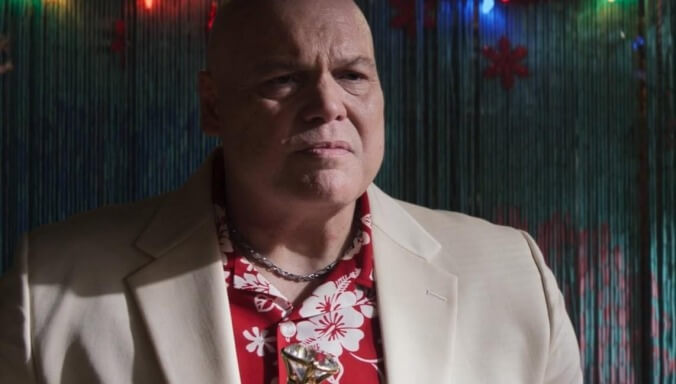
When Vincent D’Onofrio reprised his nefarious character in Disney+’s the return met with collective cheers. That’s because of his incredibly scary turn as Wilson Fisk, a.k.a. Kingpin, a deadly foe to Matt Murdock and (let’s be honest) pretty much anyone else he meets. Packed with a ton of snazzy white suits and emotional instability, this version of Kingpin doesn’t start out with his assigned moniker. Fisk is a well-connected crime lord whose love for Vanessa often drives his killer motivations. D’Onofrio transforms him into a riveting and dangerous enemy; his booming voice helps him dominate every scene he’s in. He doesn’t want to snap the universe in half like Thanos, but Kingpin still transforms into a uniquely chilling villain over three Daredevil seasons. Here’s hoping the reign of terror continues in Echo. [Saloni Gajjar]
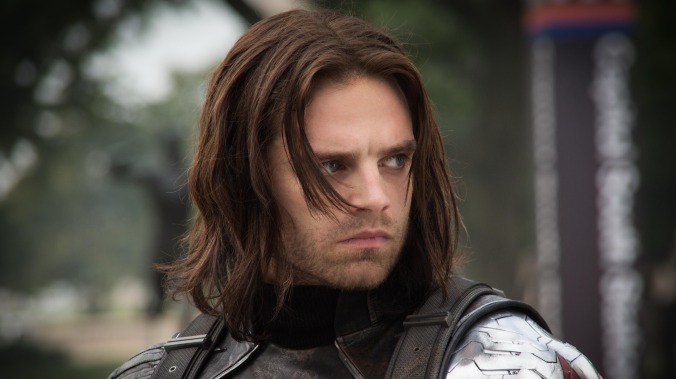
Bucky probably wouldn’t rank as high if he had simply remained Captain America’s loyal BFF from , though Sebastian Stan played that version of the character with plenty of charm. No, what makes Bucky stand out is his (literal) tortured backstory of being kidnapped, enhanced, and brainwashed by Hydra. He’s a menacing boogeyman in , and his journey to slowly shed the layers of conditioning through and onward is truly captivating. By he’s come to an uneasy middle ground, regaining his loyalty and sense of humor while facing down an unshakable sense of guilt (and intense PTSD). No other character in the MCU has undergone such a transformation, and it makes him one of the franchise’s most compelling heroes. [Mary Kate Carr]
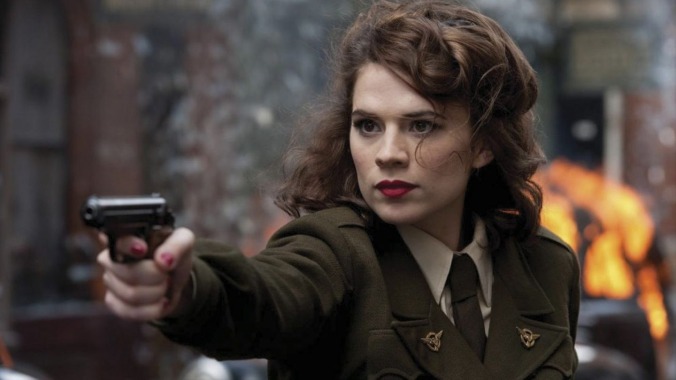
Peggy Carter has lived many lives: WWII-era code breaker, British MI6 agent, founder of S.H.I.E.L.D., love interest of Steve Rogers (and, as glimpsed in and , the super-powered Captain Carter). More credit should go to Hayley Atwell for grounding this character through so many iterations; from the first to her own series , she managed to break ground as one of the MCU’s most prominent female characters with intelligence, grit, and panache. Atwell also possesses one of the simplest but most important criteria for inclusion on a list of Marvel faves—action bona fides—with the added bonus of looking absolutely fabulous every moment she’s kicking ass. [Jack Smart]
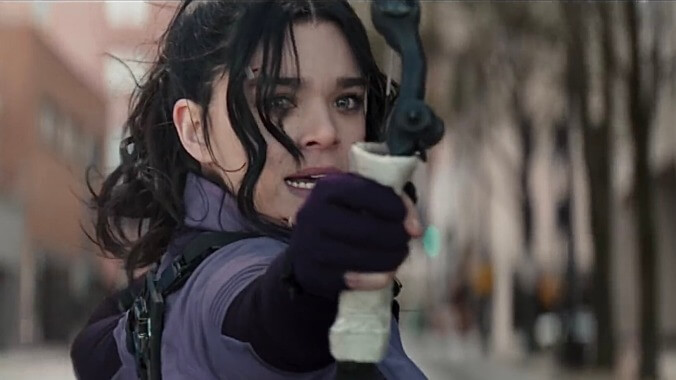
Much like Kamala Khan, it’s easy to immediately fall in love with the young, earnest, and enthusiastic Kate Bishop. Hailee Steinfeld’s magnetic performance grounds Disney+’s , even when the newbie hero decides to take on a villain like a Kingpin. Steinfeld is able to sell Kate’s burgeoning confidence and archery skills. How can anyone not root for her resilience, strong sense of justice, and ability to bond with pretty much everyone she meets—from her idol Clint Barton to a very reluctant Yelena Belova. The MCU is clearly gearing up for a Young Avengers team-up in Phase Four, and with her six-episode run, Kate Bishop has proven herself worthy of inclusion in that crew. [Saloni Gajjar]
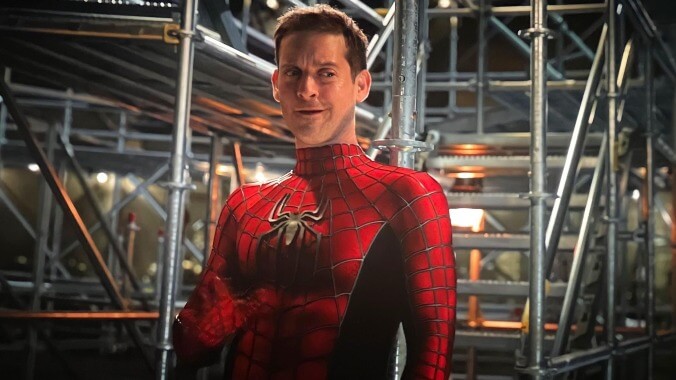
The old argument is that Tobey Maguire was good at playing Peter Parker but bad at playing Spider-Man, while Andrew Garfield was the reverse and Tom Holland is the first to be good at both. But shouldn’t that make Maguire the best one? A Spider-Man who is too good at anything is boring, since Spidey is best when he’s always suffering and shouldering all of the bullshit of the world, yet he still finds something left in the tank to keep going. Tobey Maguire’s Spider-Man really feels like he’s carrying that weight, whether he’s being crushed by the knowledge that he and Mary Jane can’t be together or by the fact that he has to face a lot of unfair criticism for a dance sequence that is actually very funny and serves as a window into his character and what he thinks he wants out of life. [Sam Barsanti]
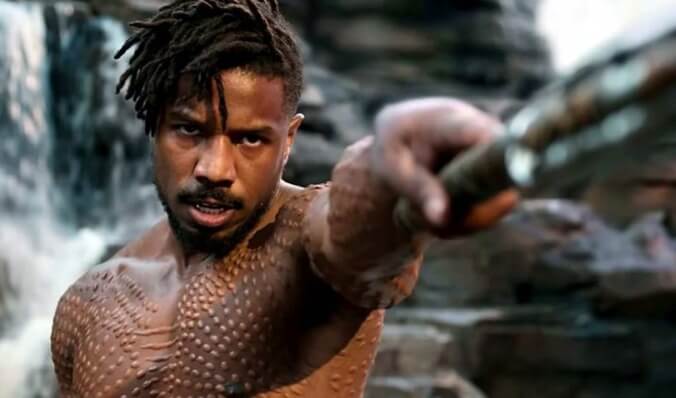
No villain with a name so stupid (he’s a mercenary who “sells” death, get it?) should be this smart. But Michael B. Jordan’s Erik “Killmonger” Stevens—a.k.a. exiled Wakandan prince N’Jadaka—manages it, breaking the MCU’s long streak of lackluster non-Loki villains in the process. Get a load of this guy: He (legally!) claims the role of Wakandan sovereign from his cousin, T’Challa! He has a plan that, sure, would kill an enormous number of people, but also has some very trenchant points about the global effects of Wakanda’s isolationist policies! He ! Is it any wonder Black Panther seems as saddened as the rest of us when he’s forced to put Killmonger down for good? [William Hughes]
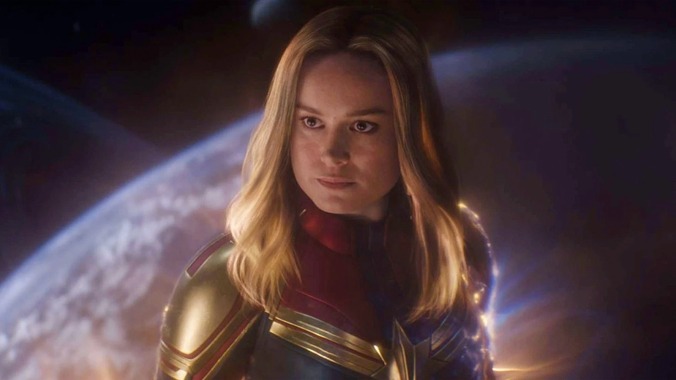
Marvel movies always have a lot of fun with the rare moments when extremely powerful characters are able to let loose and unleash all of their strength—like “puny god” in and Thor’s arrival in Wakanda in —but few of them have the punch (so to speak) of Captain Marvel fiiinallly joining the final battle in (after being awkwardly kept off the table for the entire movie) by effortlessly shredding Thanos’ mothership with her bare hands. Not only is it badass, but it’s a payoff to Jude Law’s character Yon-Rogg’s misogynistic attempts to diminish Carol’s power in . Being extremely strong and awesome is just who she is. Plus, just from a mythology standpoint, she’s so cool that she inspired Nick Fury to invent the Avengers in the first place, which has to be worth something. [Sam Barsanti]
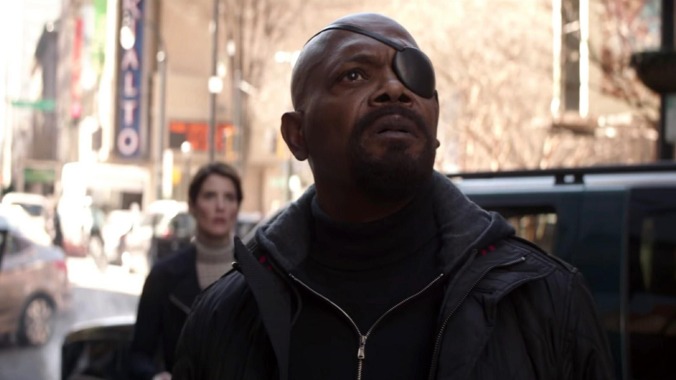
Did you know Marvel Comics redesigned the character of Nick Fury using Samuel L. Jackson’s likeness—years before the actor was cast in the MCU’s 2008 debut ? Such is the game-changing power of a Hollywood icon. Marvel’s big-screen saga just wouldn’t be the same without Jackson as the director of S.H.I.E.L.D. and the original assembler of Avengers. He can deliver steeliness, commanding power, and outrage, all from behind that signature eye patch. He’s no-nonsense without ever sacrificing comedy. And when, years from now, cinema historians look back at the legacy of these films and measure their impact, Jackson’s Fury will remain a prominent figure in the Universe. Or maybe it’s the other way around: of all the entertainment franchises to which Jackson has added gravitas (, , ), the MCU will end up as his most significant. [Jack Smart]
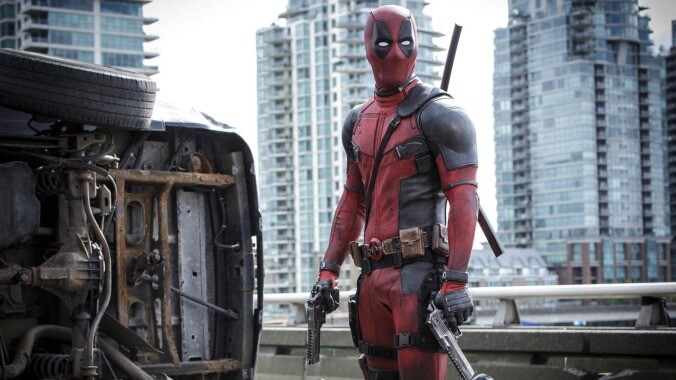
Ryan Reynolds’ first outing as Wade “The Merc with the Mouth” Wilson in got at least one thing right: The mouth. Wilson’s fast-talking, pop culture-referencing warrior was a welcome respite in an otherwise sloppy film, and fans spent years demanding the standalone adventure he deserved. When it finally came, in 2016's , the meta-fictional, fourth wall-breaking swan dive into ultraviolence and dick jokes felt like almost too much. But that’s the thing about Deadpool: He’s always too much, and that’s just the way he likes it. It’s no wonder that MCU mastermind Kevin Feige is talking about bringing the R rating to Marvel Studios just to preserve Reynolds’ particular brand of joke-a-minute blockbuster appeal. [Matthew Jackson]
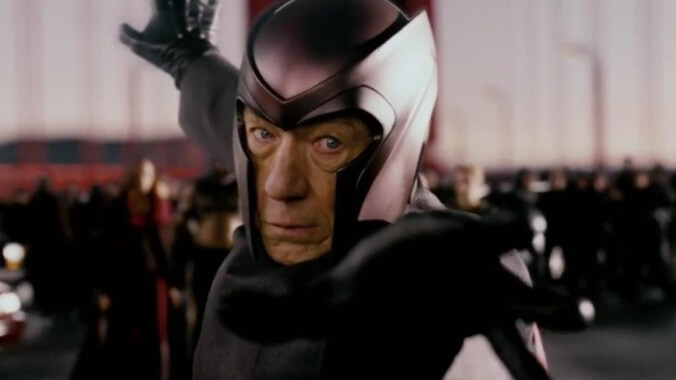
The mutant master of magnetism has always been one of Marvel’s greatest villains, with his darkest acts of violence fueled by supremely human emotions, and his turns toward good tinged by his taste for vengeance. Ian McKellen captured it all in the Fox films, laying out Magneto’s ethos of mutant supremacy with boundless charm—and managing the steely looks required to make a power that’s mostly “do a couple of arm gestures while the CGI folks do their thing” actually work. McKellen never lets you forget there’s a killer lurking beneath those honeyed words; he also makes it clear why Charles Xavier hopes eternally that his greatest friend might one day be redeemed. [William Hughes]
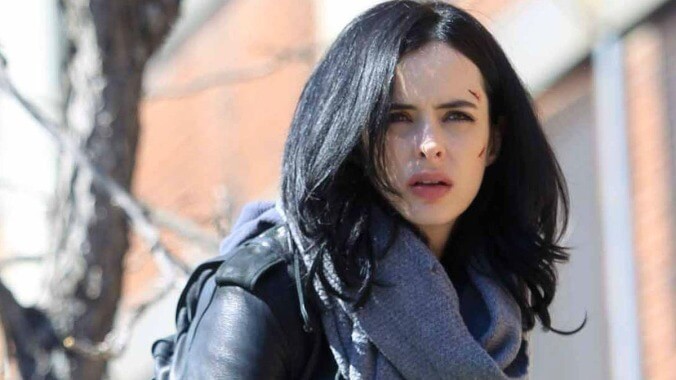
was remarkable in many ways. It was, technically, Marvel’s first female-led solo project (even if she’s since been exiled from the MCU canon). Tonally, it was darker than any live-action MCU project that came before it (though the series did have a sharp sense of humor). And Jessica herself, played to prickly perfection by Krysten Ritter, remains unique in the Marvel pantheon. Jess was a reluctant hero who couldn’t help herself from doing good, even when all she wanted was to self-destruct. The compounded trauma of her parents’ deaths and her non-consensual relationship with Kilgrave (David Tennant, one of the most chilling villains of all time) hardened her completely, but couldn’t stop her from caring about other people. Again and again, Jessica had to make impossible choices, often putting her in direct opposition to the people she loved, all while trying to pick up the pieces of a shattered life. It’s hard to imagine a Marvel hero in the Disney+ era directly confronting rape culture the way she did. Even beyond Marvel, few characters on television have depicted the reality of being a survivor like Jessica: not always likable, not always right, trying her best and failing and trying again. The super strength was cool too–but that was only ever a small part of what made Jessica Jones such an incredible hero. [Mary Kate Carr]
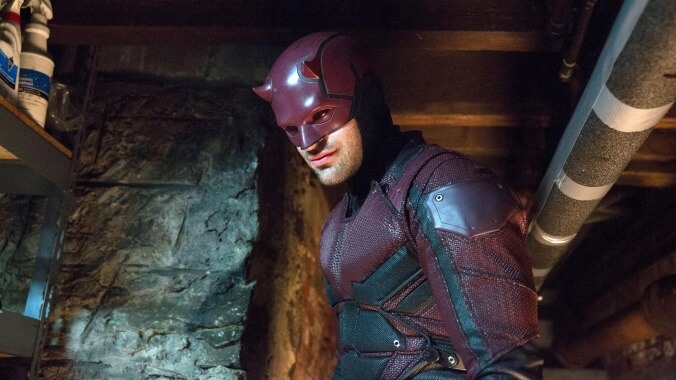
There are superheroes with tragic backstories, who use their dark and traumatic pasts to motivate them to be good people, and then there’s Daredevil. Matt Murdock was blinded as a child when radioactive chemicals splashed into his eyes, his reward for trying to save someone from being hit by a car. Then his father got murdered. Then his college girlfriend turned out to be evil. And due to a crushing, all-consuming culture of self-flagellation known as Catholic Guilt, nothing good he ever does will disabuse of him of the notion that he should be doing more. Oh, also, he’s a successful lawyer by day and a brutal vigilante crimefighter at night, overcoming his lack of eyesight with a “radar sense” that allows him to “hear” the world around him. Daredevil, The Man Without Fear, is one of the most emotionally compelling and thematically rich characters in the Marvel canon, if not the entire superhero genre. [Sam Barsanti]
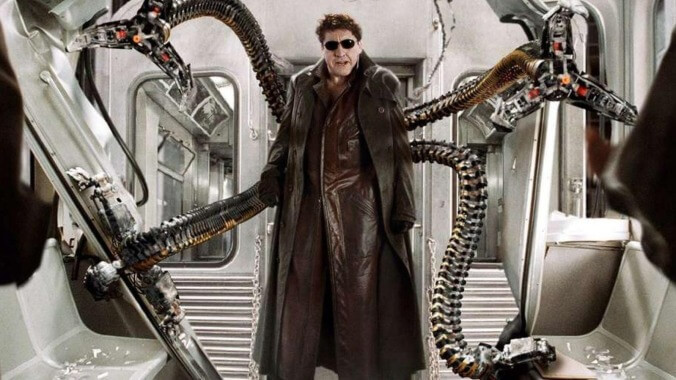
Of all the sympathetic mad scientists Peter Parker has fought over the years, Alfred Molina’s Otto Octavius has to be the most sympathetic—to the point that Marvel practically made a whole movie (last year’s ) out of a desire to save and redeem the character at last. And it’s hard to blame them: Then and now, Molina excels at both sides of Doc Ock, whether it’s the warm mentor figure trying to crack fusion power, or the cold-eyed psychopath he becomes once those pesky tentacles take full control. is a movie of big, beautiful, broad emotions, and its villain is no different, whether he’s menacing helpless old ladies, or taking a last-minute turn back toward the light. [William Hughes]
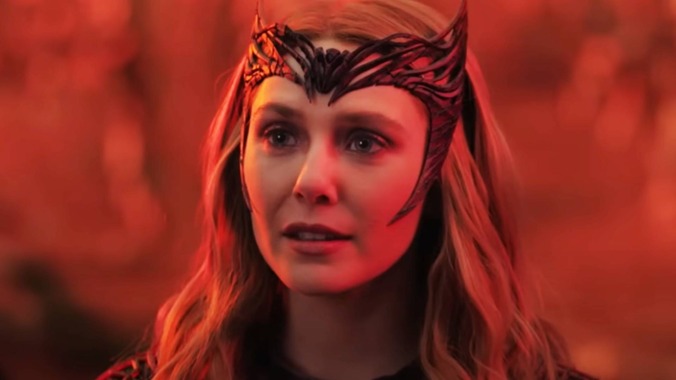
There were plenty of reasons to count Elizabeth Olsen’s Wanda Maximoff high on any round-up of Marvel characters from her very first MCU appearance, in 2015’s (unless you count a mid-credits scene in 2014’s ). Her eyes and hands glowed with witchy power, and bad guys—actually, good guys too—fell helpless before her. And to the extent that we can conjecture which Avenger is the most all-around powerful, this character, who almost single-handedly took down Thanos in , would be very high in that ranking. But Wanda’s real impact on the MCU peaked on the small screen when the 2021 series ushered in a new era for Disney and its streaming platform. Olsen’s Emmy-nominated delivery of Wanda’s dazzling, delightful, ultimately tragic transformation into the Scarlet Witch brought the MCU closer to prestige drama than it’s ever been. Plenty of the actors on this list have found nuance and pathos in their superheroic characters, but Olsen digging to Wanda’s deepest emotional depths is what makes this character unforgettable. [Jack Smart]
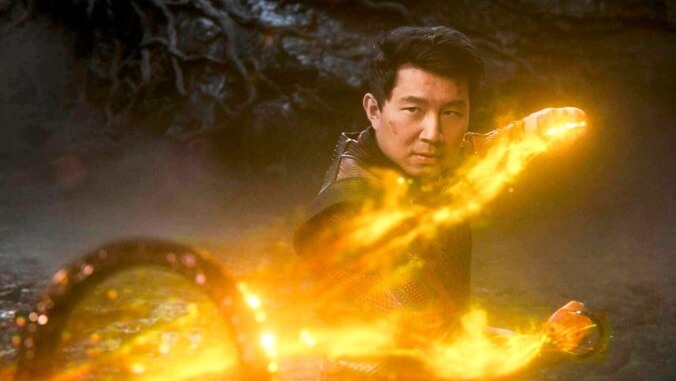
The good part about a post- universe is that Marvel is opening the doors for underrated and diverse superheroes with full-fledged comic books, including Ms. Marvel, Echo, Kate Bishop, and Moon Knight. The studio went big (literally, screen-wise too) with Shang-Chi’s introduction in . Simu Liu’s calm, confident take on the role helps bolster the superhero’s standing on The A.V. Club’s list. Shang-Chi not only confronts his past (being raised under a strict regimen by his father, Xu Wenwu), but also establishes his future as a major player in the MCU, as witnessed in the film’s post-credits scene. Shang-Chi is a compelling hero who is charting his own path, one that revolves around but isn’t solely dictated by his Asian heritage. [Saloni Gajjar]
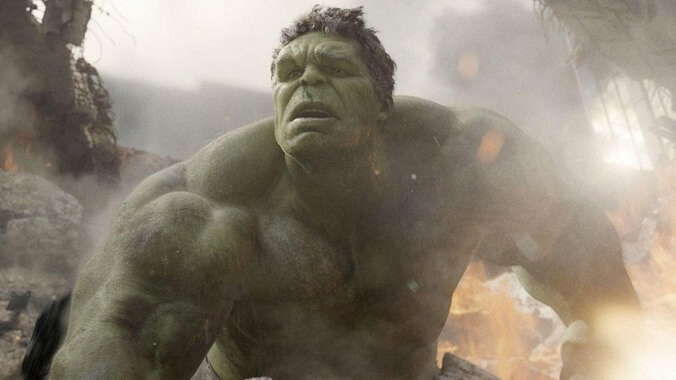
Mark Ruffalo entered as a substitute Hulk, and immediately burst out of Edward Norton’s shoes with a witty, restrained portrayal of a guy just trying to survive his own personal monster. The way he fidgets, slumps, and shrugs his way through meetings with the chiseled gods who are his teammates immediately sets him apart, and it accentuates the contrast when he finally explodes into action as the Other Guy. His recent evolution into a version of the Hulk that can co-exist with the super-genius human who created him hasn’t been fully explored just yet, but Ruffalo’s blend of humor and heart has already made him one of the MCU’s most valuable supporting players, even from behind a motion capture rig. [Matthew Jackson]
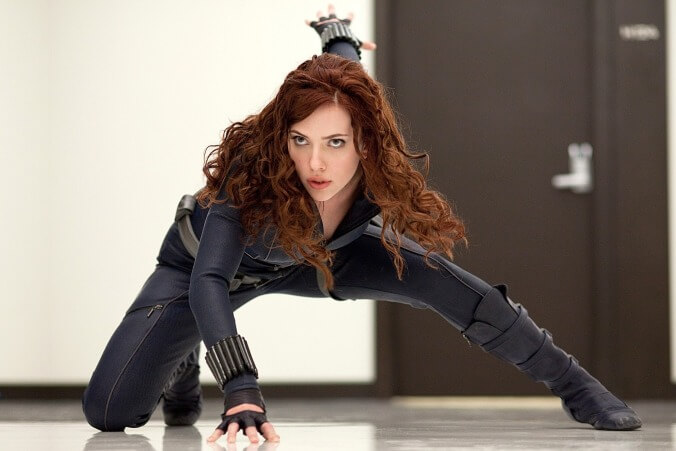
Black Widow weathered a lot in her decade of MCU adventures, from a divisive forced sterilization subplot to a slot as Captain America’s sidekick to an eventual solo movie that only came after her canonical death in . That Scarlett Johansson was able to deliver anything resembling a consistent performance feels like a minor miracle in the context of all of that. That she was able to command the attention of fans, even beyond her death, enough that Natasha Romanoff’s story demanded a standalone film even after a complete arc within the films, is a testament to the power of the character. [Matthew Jackson]
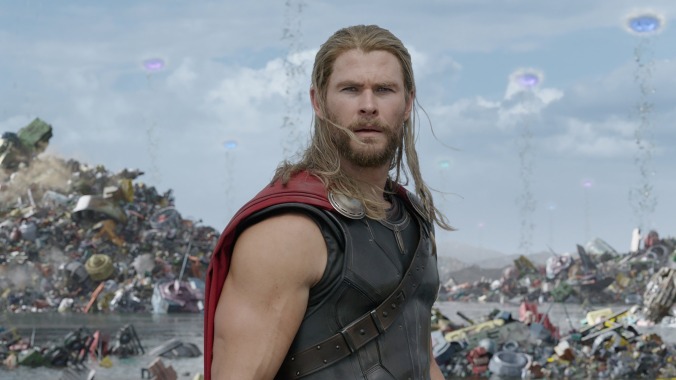
When we first meet Thor in his self-titled movie debut, his primary conflict is an internal need to prove himself, to be worthy of the hammer and the status afforded to him by his royal godhood. Chris Hemsworth’s Golden Boy looks and knack for fish-out-of-water comedy were enough to sell that arc in a reasonably solid way, but what’s given Thor a true sense of staying power is the latter-day evolution of the character which began with . These days, Thor’s natural, rakish immaturity is still deployed for plenty of comedy, but there’s a deeper pathos behind Hemsworth’s eyes. After one last epic adventure in , Hemsworth may be ready to hang up his hammer for good, and we’re okay with that. The tremendous weight of being a god is evident on Thor’s chiseled shoulders now, and that’s made the character all the more satisfying. [Matthew Jackson]
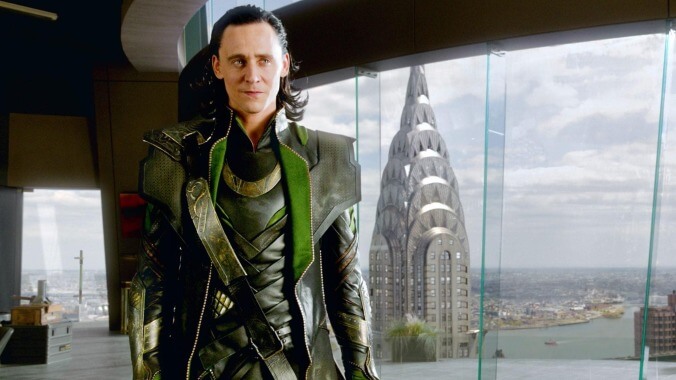
The genius of Tom Hiddleston’s Loki is all in the way he carries himself—as though deeply, perpetually affronted by the bickering, chaotic, silly Marvel universe he’s been asked to rule above. It doesn’t hurt that Hiddleston can flip the character’s whole demeanor in a second; tyrannical and terrifying one moment, pathetic and hilarious the next, and always, way deep down, the little brother hoping his big bro will notice his latest scheme, or joke, or potential planet-crushing alien invasion. The quintessential MCU villain, Loki is a killer, a chew toy, a punching bag, and more; he’s also the franchise’s ultimate answer to the question “How far can you coast on charm?” with the answer apparently being to the end of time … and back. [William Hughes]
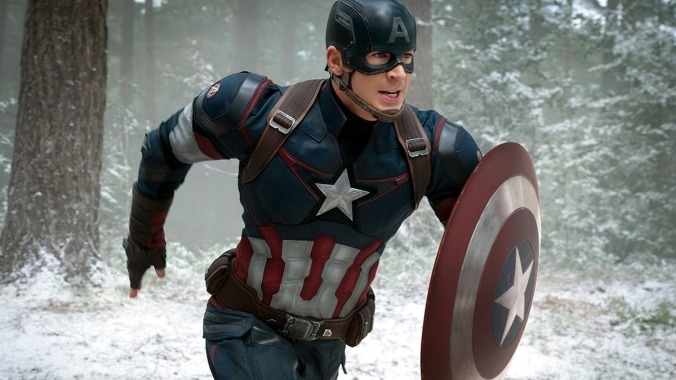
Without a shadow of a doubt, Chris Evans’ Captain America further solidified the MCU’s success. In fact, the Cap trilogy—, , and —can be regarded as a game-changing franchise for the MCU. With each film, Steve Rogers’ character development finds exciting new ground. He may initially appear as a bland, blonde, muscular man with a shield, but Evans turns the impression around in no time. Thanks to his performance, Steve transforms into a sharp, multidimensional character and natural leader over the course of his MCU appearances. From a hesitant hero who scolds “Language” when he hears curse words in response to the iconic “Avengers Assemble” scene in (a top 5 MCU moment), Cap’s growth is unparalleled. After decades of sacrificing himself for the world, it’s no wonder he got a happy ending with the love of his life—after all, it’s what “America’s ass” deserves. That, and being in the top 10 of this A.V. Club list. [Saloni Gajjar]
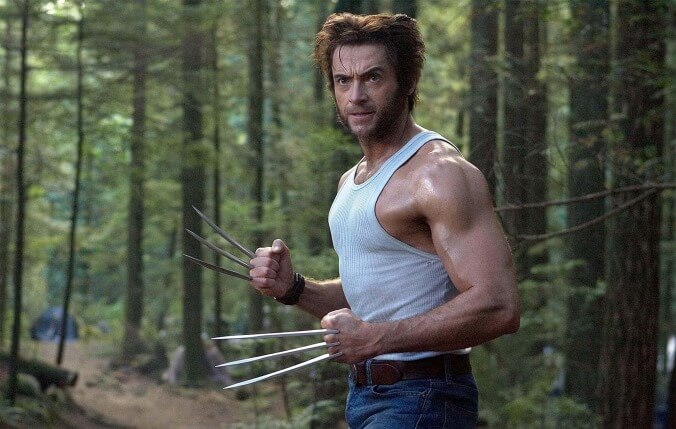
Early in the conception of this Marvel 100 list, our team realized an important criteria for inclusion was the actors embodying each character: if you hear the word Wolverine, and what comes to your mind is a side-burned, tank-topped Hugh Jackman baring his claws, that’s a sign of enduring cultural impact. One might even go so far as to call Jackman iconic, since cartoon depictions of Wolverine began resembling him more and more after 2000’s became a big-screen game-changer. His spin on the character—muscles and motorcycles and cigar-chewing swagger—became the definitive Wolverine, so much so that even the light reboot that was 2011’s re-cast every character but him. And Jackman’s best work may have been 2017’s critically lauded : the perfect swan song for one of Marvel’s biggest icons. Or it would have been, if Ryan Reynolds hadn’t somehow convinced Jackman to come back as Wolverine for . [Jack Smart]
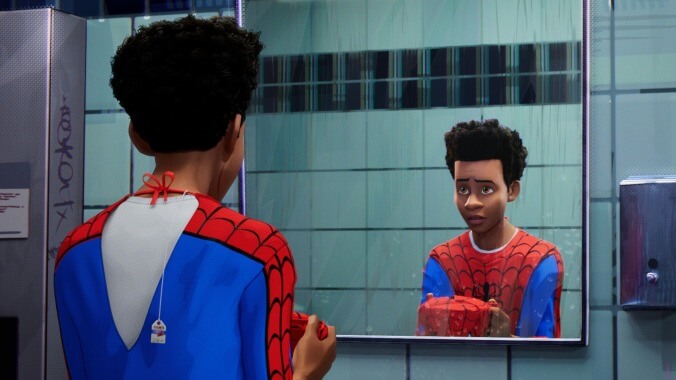
So much praise has been printed for that attempting to distill its impact into the confines of this paragraph feels impossible. But we’ll take the. Just when moviegoing audiences were reaching peak Spider-Man fatigue, along came the animated, multiverse-jumping Miles Morales, upending expectations and setting a bar for the character that has yet to be reached. The film finds Miles, voiced impeccably by Shameik Moore, figuring out how to put his authentic self into the shoes—or graffitied suit—of the Spider-Men before him. By leaning into the absurdity of the character’s countless comic book and cinematic iterations, Into The Spider-Verse dared to introduce a definitive new version for audiences to root for in Miles. And root for they did—and will continue to do with the (sadly delayed) Across The Spider-Verse installments. [Jack Smart]
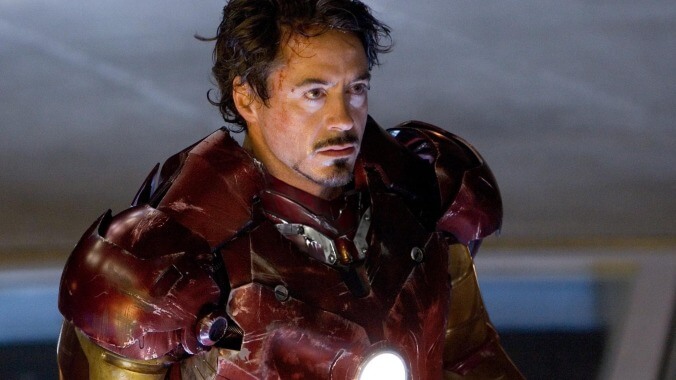
None of this works without Iron Man, to the point where the entire Marvel Cinematic Universe was shaped around his worldview, his sense of humor, and his egotism—both in terms of Kevin Feige crafting these movies and in terms of the actual canon of the MCU. The quippy version of the Avengers who are more like frustrated siblings than soldiers (or coworkers, which is often how the Justice League feels) wouldn’t happen without Tony Stark’s influence, and his status as someone who always tries to do the right thing, even if he doesn’t do it the right way or for the right reasons, still serves as an important moral backbone for the MCU. It’s why his last words—“I am Iron Man”—hit so hard in (even though they weren’t added until ). He wants everyone to know that he is making the ultimate sacrifice in a way that only he can, which perfectly sums up everything he does across all of those movies and why he’s so important to them. [Sam Barsanti]
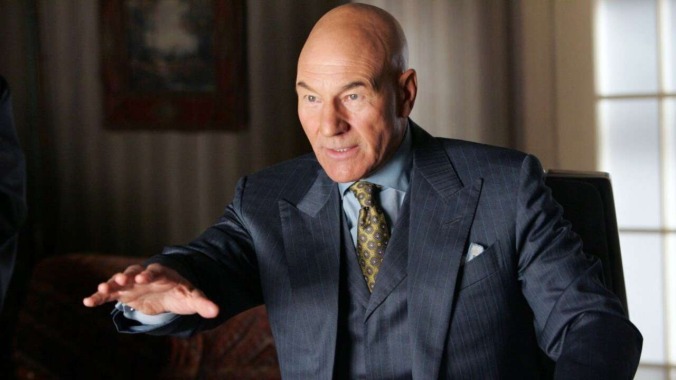
Cinematic superheroes don’t get much more iconic than X-Men mutant leader Professor Charles Francis Xavier, particularly since he’s played—in a whopping 11 films, the current record for longest career as a live-action Marvel character—by Sir Patrick Stewart. That voice. The quiet command he exudes from his wheelchair. The way he furrows his brow to speak telepathically. That voice! Seeing Stewart make his rumored, much-hoped-for reprise in the role in this year’s brought a flood of nostalgia for moviegoers who remember how the film franchise kicked off the modern renaissance of big-screen superheroes. It’s thanks to the willingness of quote-unquote serious thespians like Stewart, who can make the musings of a psychic-powered mutant sound like Shakespeare, that the genre gained legitimacy. [Jack Smart]
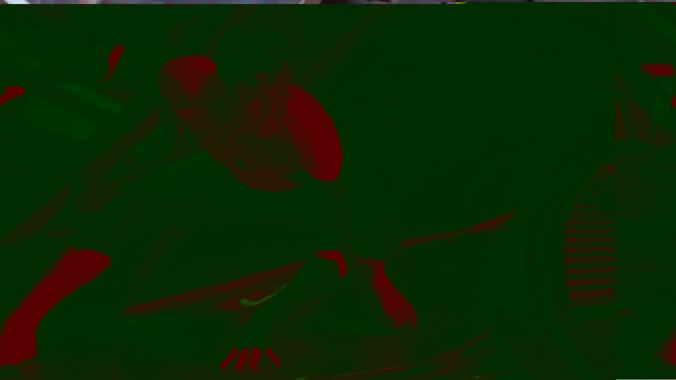
Tom Holland’s introduction as the third big-screen Spider-Man was a brief window in the middle of , but he made quite the impression as the talkative webslinger in just a few scenes. Still, there was always the chance that it was just a fluke, a moment of excitement brought on by the character’s long-demanded entry into the MCU. Then came , which allowed Holland to re-enact one of Spidey’s greatest comic book moments. Trapped under a mountain of rubble, with no one to save him, Holland’s Peter Parker had to muster the courage and strength to save himself. It’s a performance that showcases the extraordinary pivot between hero and child that Holland has mastered. In we got to see previous Spider-Men Tobey Maguire and Andrew Garfield officially pass the torch to Holland’s Peter, as he came through his own traumatic loss and fully matured into the classic version of the iconic web-slinger. [Matthew Jackson]
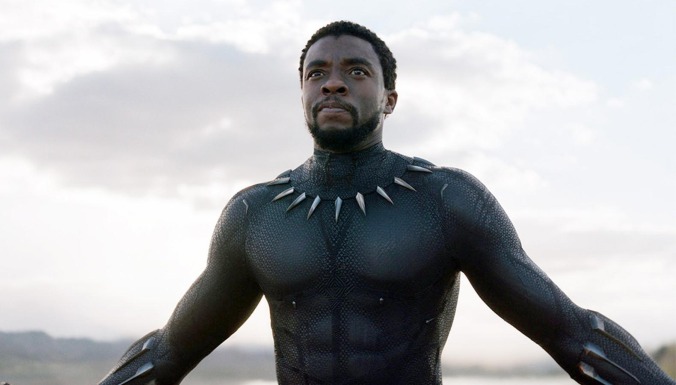
Was there any other choice for this list’s top spot than the Black Panther, T’Challa, King of Wakanda? He’s the best MCU character by so many metrics—cultural impact, critical acclaim, sheer badassery—that we had no choice but to give his highness one more crown. As the first superhero of African descent to appear in comics and then big-budget films, T’Challa has more than just the hallmarks of Marvel heroism; he’s a symbol of Black excellence and power, a character who embodies Afrofuturist ideals, an incalculable source of inspiration for so many. But equally impactful was—and always will be—the actor who brought him to life. The MCU needed a star who could embody greatness onscreen and provide inspiration offscreen, and they found it in Chadwick Boseman. The game-changing legacy of his performance as T’Challa, especially in Ryan Coogler’s film, which earned unprecedented SAG and Academy Awards, cannot be overstated. And the fact that we lost Boseman far too soon in 2020, cutting short his onscreen reign, gives us one more sentimental reason to name T’Challa our all-time favorite Marvel character. [Jack Smart]
